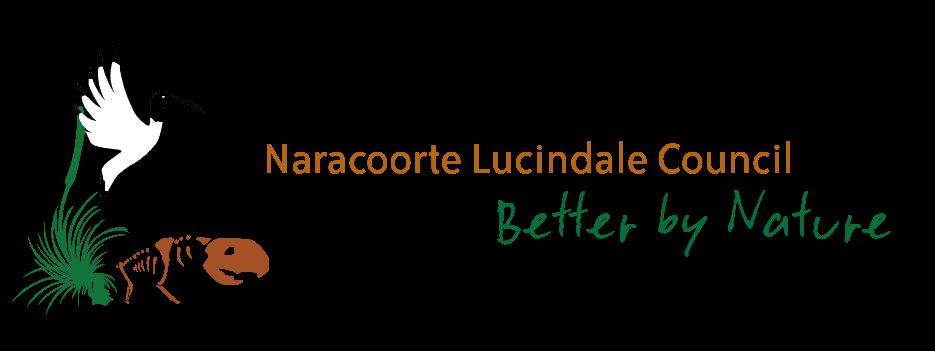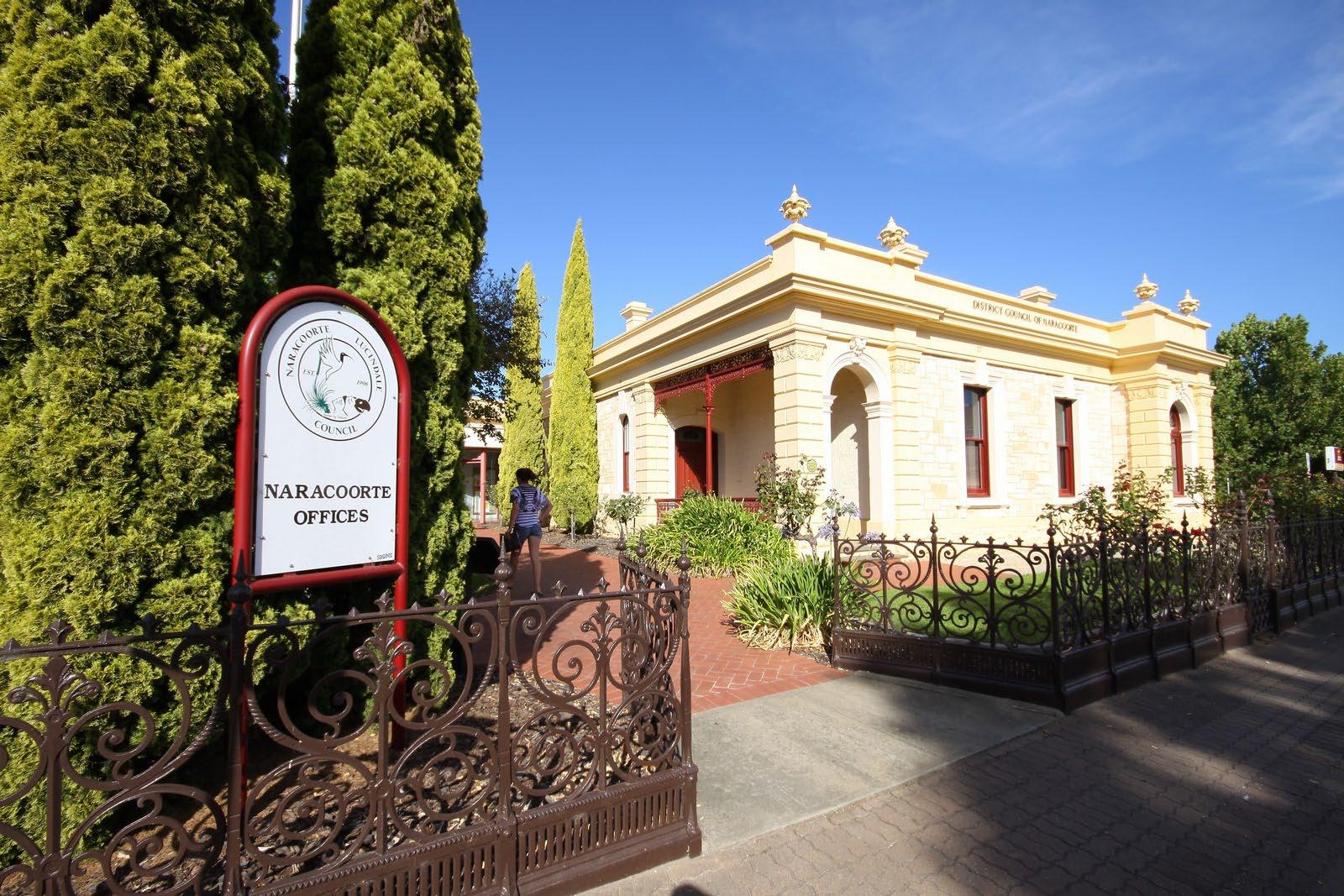






It has been another busy and productive year at Naracoorte Lucindale Council, marked by new projects, new community initiatives and planning for a positive future for the community.
Council delivered the $2.38M Naracoorte Library Redevelopment with the official opening held in February 2022. This space has transformed the way we offer programs and services for the community, with a variety of rooms and spaces offering something for everyone.
Our $3.2M capital road program was completed with a mix of re-sheeting, reseals and design works. A further $181,000 was spent on stormwater upgrades, and close to 1km of new footpaths were established.
Masterplan projects continued and Council installed new facilities at Centenary Park, Lucindale which includes basketball courts, picnic settings, water fountains and a new skate park. There was continued progress on the Frances Town Centre Masterplan with completion of the Frances Town Square which has provided a new focal point for locals and visitors to the township.
Council undertook actions from the Disability Access and Inclusion Plan and installed an all access ramp at the sound shell at the Town
Square and upgraded street furniture throughout the district to disability friendly pieces.
The Naracoorte Caves Trail was finally realised and this 16km trail now links Naracoorte to the Caves and provides an important tourism and recreational asset for our district.
Despite the ever changing Covid 19 restrictions, Council provided a diverse range of events for the community including Harmony Day, Multi Cultural Soccer Carnival, Naracoorte Fringe, Remembrance Day and the Mega Fest Trail running event. These events bought in a muchneeded injection of funds into the local economy.
Council continued its partnerships with Wellbeing SA and Country Arts SA and delivered a broad range of community initiatives including a new mural, sculptures, community art projects, running and walking groups just to name a few.
Development approvals were up from the previous year, with 186 developments valued at $30.25M approved throughout the year. Nine new land division were also approved for development.
The NRLE had another outstanding year $89M worth of sheep and $193M worth of cattle sales through the facility. Council continued to invest in upgrades and new projects such as the cattle selling sprinkler project and upgrades to the main line pipework from the pump shed to the yards as well as upgrades from the effluent lagoons to the irrigator.
With ongoing investment and maintenance, the NRLE is considered a premium livestock selling facility and contributes a significant output to the local and regional economy.
With pleasure I present to you the Naracoorte Lucindale Council Annual Report 2021 2022.
Trevor Smart Chief Executive Officer


The Council’s Strategic Plan
– 2026 is the key document guiding the direction of Council. It is structured so that Council’s decision making can be informed by the outcomes and actions set in the Strategic Plan The Strategic Plan enables Council to seek widespread feedback from the community on the direction for our district. It is an opportunity to take stock of the achievements of the past years, as well as consider the changes that will drive Council business in the future.

A
after visitor
A vibrant and progressive business centre and townships
Diverse range of thriving primary industries
Contribute to
land
Water resources and ecosystems are protected and restored
An inclusive community
A creative and artistic community
A learning community
A healthy and resilient community
A well planned district that meets the current and future needs of the community
A safe and integrated transport network
Preserve the built heritage and character of the district

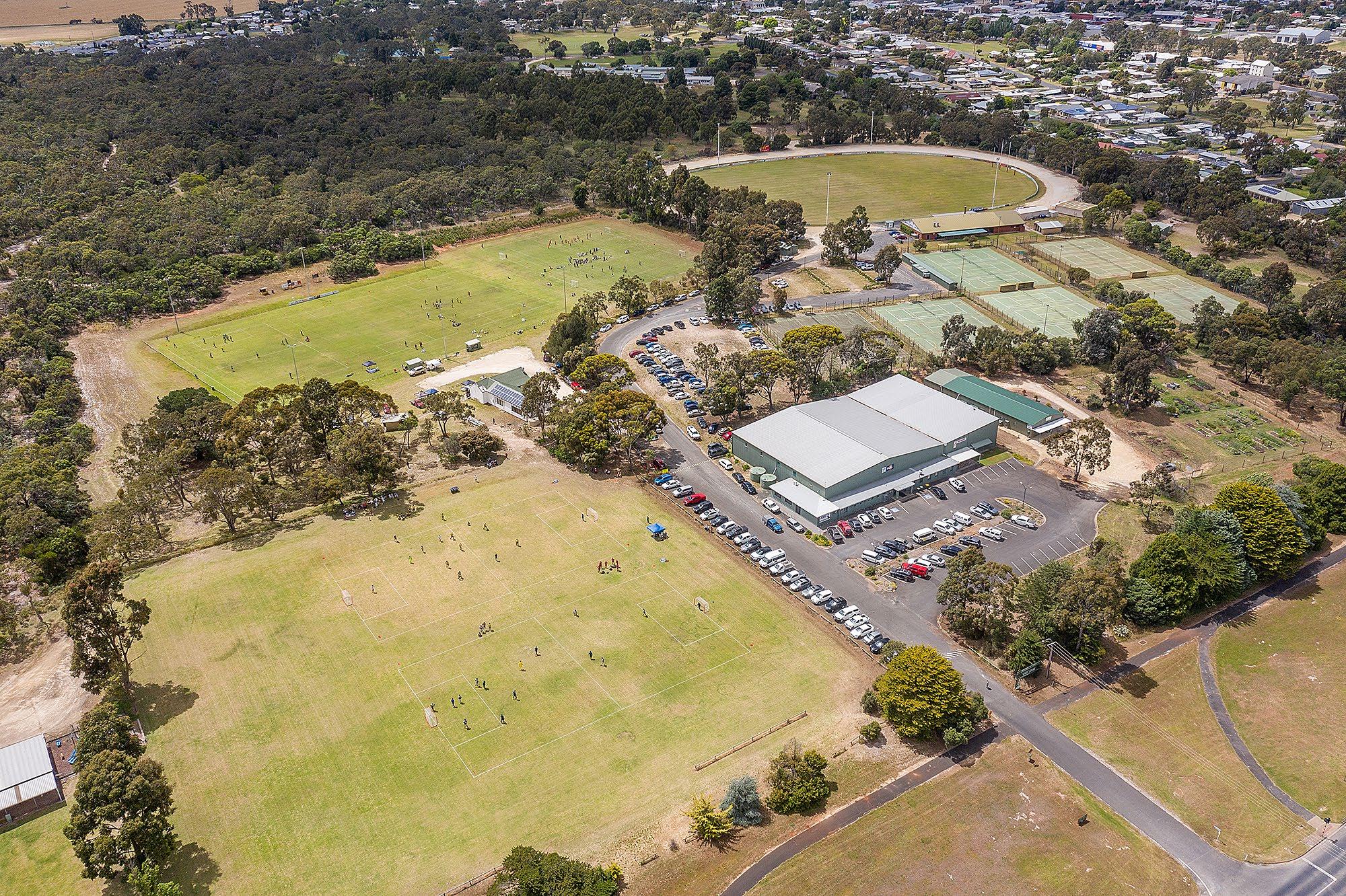
Council comprises a Mayor and 10 Councillors. Council meetings are held in the Council Chambers at DeGaris Place Naracoorte, on the third Tuesday of each month at 5.00pm. Meetings are open to the public and Council encourages attendance.
Council Committees are formed under Section 41 of the Local Government Act 1999 and are created to assist in the performance of Council’s functions.
Every 8 years, in accordance with Section 12 of the Local Government Act 1999, Council is required to review the composition of the Council.
A review was commenced in October 2016 and completed in September 2017. There were no changes to Council’s representation structure.
The next representation review will commence during 20232024.
When Council conducts a representation review, community consultation is undertaken. Under Section 28 of the Local Government Act 1999, electors may also submit a proposal to the SA Local Government Grants Commission to alter Council boundaries or the composition of Council or its representative structure.
The table shows a comparison of the elected representation quota for Naracoorte Lucindale Council compared with similar size and type of Councils in South Australia for the year 2021 2022.
As part of its commitment to good governance, Council has in place an Audit Committee which acts as an independent advisory committee to Council. recommendations to Council. The main functions of the Committee include:
• Reviewing annual financial statements to ensure that they present and fairly state the affairs of Council
• Proposing and providing information relevant to, a review of Council’s Strategic Management Plans
• Liaise with Council’s auditors in regards to Council’s financial affairs and the management of audits
• Review the adequacy of Council’s accounting, internal control, reporting and other financial management systems and practices of Council on a regular basis
Audit Committee will review other internal systems like risk management, compliance and whistle blowing and oversee audits both internally and externally of Council. During 2021 2022, the committee met six times.
Members of the Audit committee:
• Independent Member (Presiding Member) – Mr Jim Ker
• Independent Member – Ms Sonia Winter
• Cr Julie Earl
• Cr Cameron Grundy
• Cr Damien Ross
The Strategic Asset and Planning Committee provides advice and recommendations to Council that align to outcomes in Council’s Strategic Plan, including:
• The extent to which Council’s strategic planning and development policies accord with the Planning Development and Infrastructure Act, and consideration of any amendments to the Planning Codes and Guidelines as they may impact on Council’s district
• Development and review of Council’s Asset Management Plans
• Assessment and advice on Council’s expenditure programs for annual budget purposes
• Overview of Council’s Open Space and community projects and strategies
All Elected Members are members of the Committee. During 2021-2022, the committee met six times.
The purpose of the CEO Committee is to ensure that sound principles of human resource management are applied to the employment of the Chief Executive Officer.
The Committee comprises the following members:
• Mayor Vickery
• Cr Tom Dennis (Presiding Member)
• Cr Damien Ross
During 2021 2022 the Committee met three times.
The purpose of this board is to:
• To oversees the development, construction and general operations of the Naracoorte Regional Livestock Exchange
• To monitors the financial performance of the Naracoorte Regional Livestock Exchange
The Board comprises the following members:
• Community Representative – Mr Ian O’Loan
• Community Representative – Mr Jonathan England
• Cr Cameron Grundy (Presiding Member)
• Cr Scott McLachlan
• Cr Ken Schultz
• Cr Derek James Community Representatives are selected for their business acumen and working knowledge of the livestock industry.
During 2021-2022, the Board met five times.
This Assessment Panel has been established under the Planning, Development and Infrastructure Act 2016 (PID), the Planning, Development and Infrastructure (General) Regulations 2017 and the Planning and Design Code in regional South Australia.
Northern Limestone Coast Regional Assessment Panel (RAP)
A Memorandum of Understanding (MOU) was entered into by Kingston District Council, Naracoorte Lucindale Council and Tatiara District Council on the 20 August 2020.
The Committee comprises the following members:
• Independent Member (Presiding Chair) – Mrs Iris Iwanicki
• Independent Member – Mr Mark Teakle
• Independent Member – Mr Paul Johnson
• Cr Jeff Pope (Kingston District Council)
• Independent Member (Former Presiding Chair) – Mr Bill Hender (resigned October 2021)
• Independent Member – Mrs Liz Travers (resigned January 2022)
During 2021 2022, the Panel did not meet.
Naracoorte Lucindale Council has 11 Elected Members, comprising the Mayor and 10 Councillors.
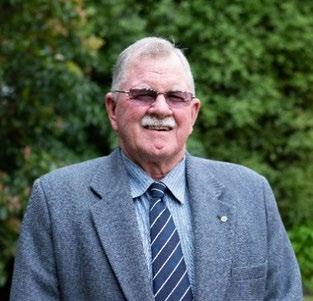
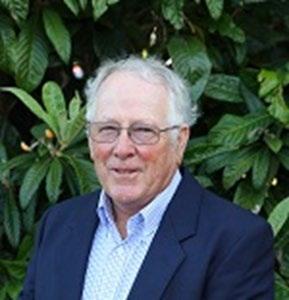



The Mayor is elected by voters in the Council area. The Mayor presides over all Council meetings and is the official spokesperson for Council.
















All Council members have been elected by the community to represent their interests. The Elected Members shape the strategic directions and policies for Council as a whole.
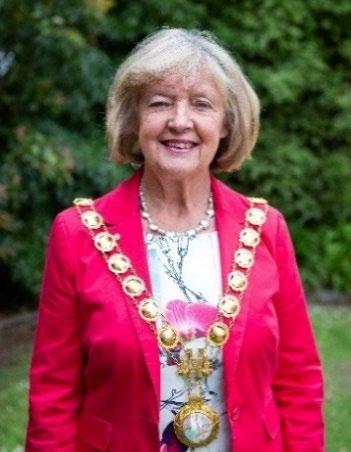
the
section
the
the
election
Under Section 76 of the Local
Act
the Remuneration
The allowance effective from November 2021
Mayor $59,728
Mayor
Presiding Member $18,665
Member
Elected Member
entitled to an Annual Allowance
• Presiding Member $290 per Meeting
• Independent Member $230 per Meeting
Additionally, travel costs will also
• Presiding Member $290 per
• Independent Member $230 per Meeting
at 0.66 cents per km if required.
Naracoorte Regional Livestock Exchange Board
• Presiding Member
• Independent Members
The following support is also provided to Elected Members to assist them in the performance of their official duties
o Fully maintained Council vehicle for travel related to official duties, with no private use.
o Council owned and maintained computer
o Council owned mobile phone
o Reimbursement of expenses relating to functions attended
o Reimbursement of internet access (up to $150 per quarter)
o Council owned and maintained computer
o Reimbursement of expenses relating to functions attended
o Reimbursement of approved childcare expenses while representing Council
o Reimbursement of travel expenses
o Reimbursement of internet access (up to $150 per quarter)
Council and Council committees may from time to time discuss an item of business in confidence and as a result exclude the public from attending the meeting for the period taken to discuss the relevant item.The Local Government Act 1999, Section 90(3) (a) to (n) sets out the criteria for when this may occur.
Following is a summary of the number of occasions the provisions listed in Section 90 (excluding the public during debate) or Section 91 (documents to be kept confidential for a period of time) were used during 2021 2022 and orders from previous years that remain operative at 30 June 2022.
• 35 orders to move into confidence were made in 2021 2022, of these 28 orders were made to retain reports, minutes and other documents in confidence
• 7 orders from prior years were released from confidence
• 19 orders remained operative at the end of the financial year (not including orders made before 15 November 2010)
Date Topic 2021 2022
6/07/2021
Criteria for Confidential Order
Held in Confidence as at 30-6-22
Tender Naracoorte Library Development, and Naracoorte Library & Town Hall Branding k Released
27/07/2021 Contract 202122 01: Rubble Raising and Crushing k Released 27/07/2021 Contract 202122 05: Bitumen Works k Released
27/07/2021 Business Innovation Grants 2020 21 d Released 27/07/2021 Energy Savings Dispute h Held
24/08/2021 Naracoorte Primary School Moore Street/Park Terrace Grant Funding k Released
24/08/2021 Naracoorte Primary School Moore Street/Park Terrace Grant Funding k Released
24/08/2021 Contract 202122 03 Roadside Slashing & Mowing Services k Released 24/08/2021 Open Space Grant Program d Released 24/08/2021 Open Space Grant Program d Released 24/08/2021 Business Innovation Grants 2020-21 d Released 24/08/2021 Confidential Minutes of the Strategic and Asset Planning Committee 10 August 2021 k Held
24/08/2021
Confidential Minutes of the Strategic and Asset Planning Committee 10 August 2021 k Held
24/08/2021 Footpath Upgrade Requests k Released 24/08/2021 Footpath Upgrade Requests k Released
28/09/2021 CEO Confidential Report Public Lighting Dispute h Held 28/09/2021 Contract 202122 15: Park Terrace Footbridge, Naracoorte k Released 28/09/2021 202122 Tenders 09 14: Design Multiple Projects (Combined) k Released 28/09/2021 Contract 202122 04: Weed Spraying Services k Released 28/09/2021 Contract 202122 16: Stormwater Upgrade Foster Street, Naracoorte k Released
26/10/2021 Naracoorte Town Centre Rejuvenation Plan Working Group a Released 26/10/2021 Confidential Minutes of the Strategic Asset Planning Committee 12 October 2021 d Held 26/10/2021 Confidential Minutes of the Strategic Asset Planning Committee 12 October 2021 d Held 26/10/2021 Sale of Land: 27 Parkside Court, Naracoorte d Released 26/10/2021 Contract 202122 17 Road Reconstruction Park Terrace and Moore Street k Released 23/11/2021 Contract 202122 19: 59 77 Smith Street Footpath Upgrade, Naracoorte k Released 23/11/2021 Naracoorte Regional Sports Centre Project k Held 25/01/2022 SANTOS Tour Down Under 2023 d Held 22/02/2022 Kerbside Waste Diversion d Held 26/04/2022 Cleaning Contract 202122 08 Public Amenities k Held 26/04/2022 CEO 2022 Annual
Management Review a Held
d Held 24/05/2022 CEO 2022
Joint Councils
Report a Held 28/06/2022 Cleaning Contract 2022223
Municipal Buildings k Held 28/06/2022 Road Closure
Sale Road
b Held
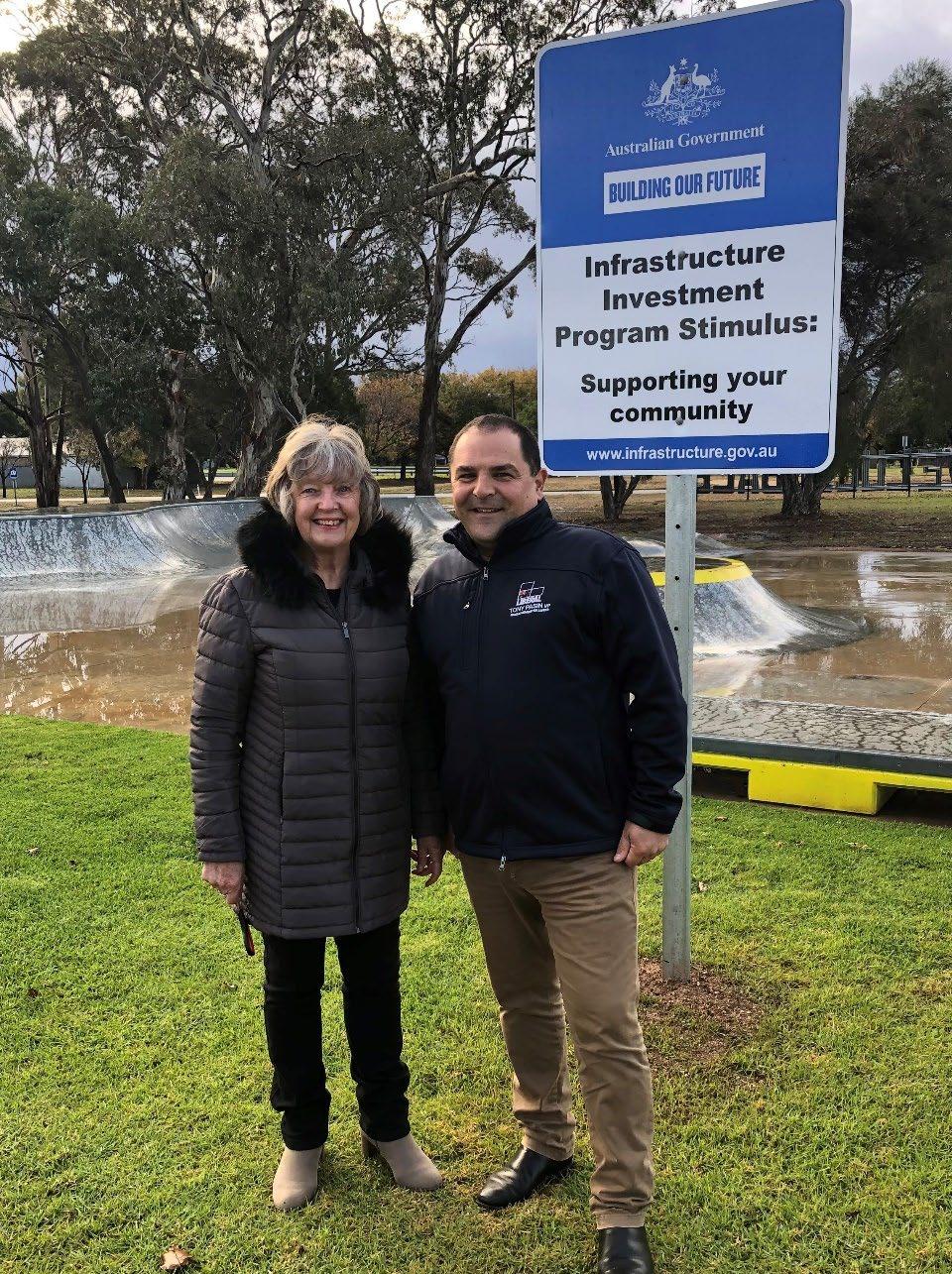
Council is required to develop and maintain procurement policies, practices and procedures. Council’s procurement policy is directed towards:
• Obtaining value in the expenditure of public money
• Providing for ethical and fair treatment of participants
• Ensuring probity, accountability and transparency in procurement operations
Policies in regards to contracts and tenders provide guidelines on:
• The contracting out of services
• Competitive tendering and the use of other measures to ensure that services are delivered cost effectively
• The use of local goods and services
• The sale or disposal of land or other assets
As required by the Local Government Act 1999, Council has a Grievance/Review of Decisions procedure, outlining how decisions of Council or other people acting on behalf of Council are reviewed. There were no applications for review of decisions during 2021 2022.
Council has 48 Community Land Management Plans relating to community land such as sporting and recreation areas, parklands, cemeteries, reserves and forestry plantations.
A Freedom of Information Statement is published annually in accordance with the requirements of the Freedom of Information Act 1991. Two Freedom of Information applications were received during 2021 2022.
There were no applications brought forward from the previous year and there were no unfinished applications at 30 June 2022. Inquiries or requests for information under the Act should be forwarded to: Freedom of Information Officer Naracoorte Lucindale Council PO Box 555, Naracoorte, SA 5271
The Freedom of Information Statement is available on Council’s website.
Council is required to keep and maintain the following registers in accordance with the Local Government Act 1999. Registers
• Members Register of Interests
• Members Register of Allowances and Benefits
• Officers Register of Remuneration, Salaries and Benefits
• Officers Register of Interests
• Fees and Charges
• Community Land Management Agreements
• Public Roads
• By Laws
• Building Upgrade Agreem ents
• Election Campaign Donation Returns
• Register of Interests (Regional Assessment Panel Members)
• Elected Members Disclosure of Conflict of Interests
• Land management agreements
• Confidential Orders
• Gifts and Benefits
• Council Resolutions Codes
• Elected Members Code of Conduct
• Code of Practice for Access
to Council Meetings and Associated Documents
• Employee Behaviour Standards
• Code of Practice for Meetings of Council and Council Committees
Policies
The following are mandatory policies that are required by the Local Government Act 1999
• Caretaker Policy
• Procurement Policy
• Public Interest Disclosure Policy
• Customer Service and Complaints Handling Policy
• Road and Place Naming Policy
• Elected Members Allowances and Support Policy
• Order Making Policy
• Public Consultation and Community Engagement Policy
• Child Safe Environment Policy
• Internal Controls Policy
Council’s Public Consultation and Community Engagement policy sets out how Council will engage with the community in its decision making processes. During 2021 22 Council sought comment from the community on the following:
Pioneer Park Masterplan Development
2022-2023 Draft Annual Business Plan & Budget
Naracoorte North Parklands Consultation
Proposed Exclusion of Classification of Land as Community Land (Janz Street)
Naracoorte Swimming Lake Masterplan
Draft Naracoorte Lucindale Wellbeing Plan
Little Corella Management Program
Feedback sought on Blackford Avenue Range Lucindale fire response
Did you step it up for the Step It Up Challenge?
Regulation 35 (2) states that Council must provide a summary of the details (including costs) of any gifts received by Elected Members of employees above the value of $50. The following gift was received during 2021 22.
Elected Members NIL Employees Hamper Basket $200.00
1 May 2022
A combined figure of $41,480.42 was expended through Council Credit Cards for both elected members and employees of the Council during the 2021 2022 year.
As prescribed by Section 131(1a) of the Local Government Act Council can report legal costs incurred to the value of $27,068.12 for the financial year.
As described under Schedule 4, Clause A of the Local Government Act, Council must provide a summary of the details of any interstate or international travel undertaken by members or employees of the Council during the relevant financial year funded in whole or in part by the council. During the 2021 2022 $3,324.64 was expended for Mayor Vickery OAM to attend the 2022 Australian Local Government Association National General Assembly in Canberra.
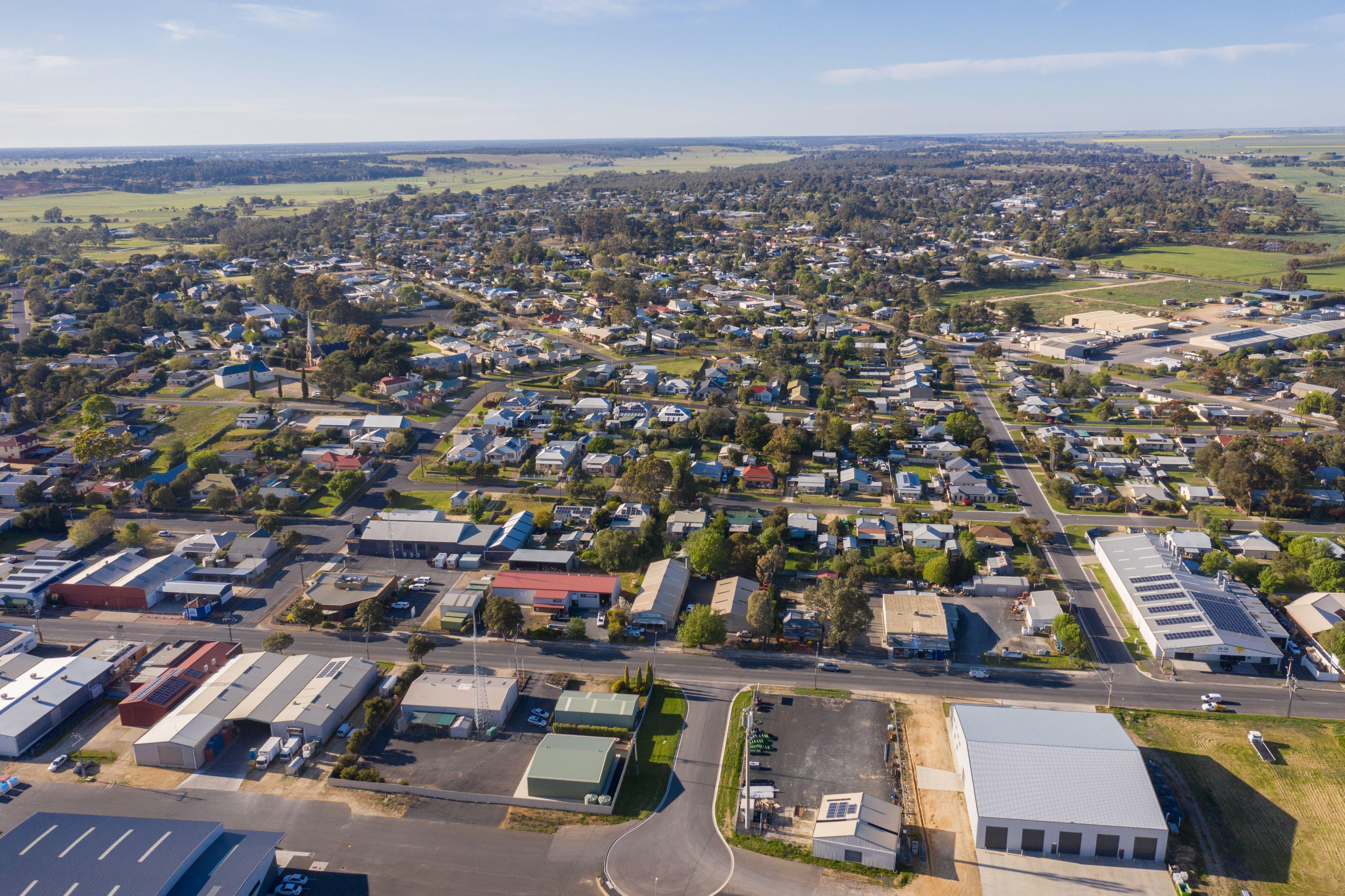
Community
Arts & Cultural Facilitator (3 year contract)
Wellbeing Program Coordinator (2 year contract 0.5 FTE)
Tourism & Venues Coordinator (0.8 FTE)
Venues Officer (0.7 FTE)
Customer Service Officers (0.4 FTE)
Library
Customer Service
(1.5 FTE)








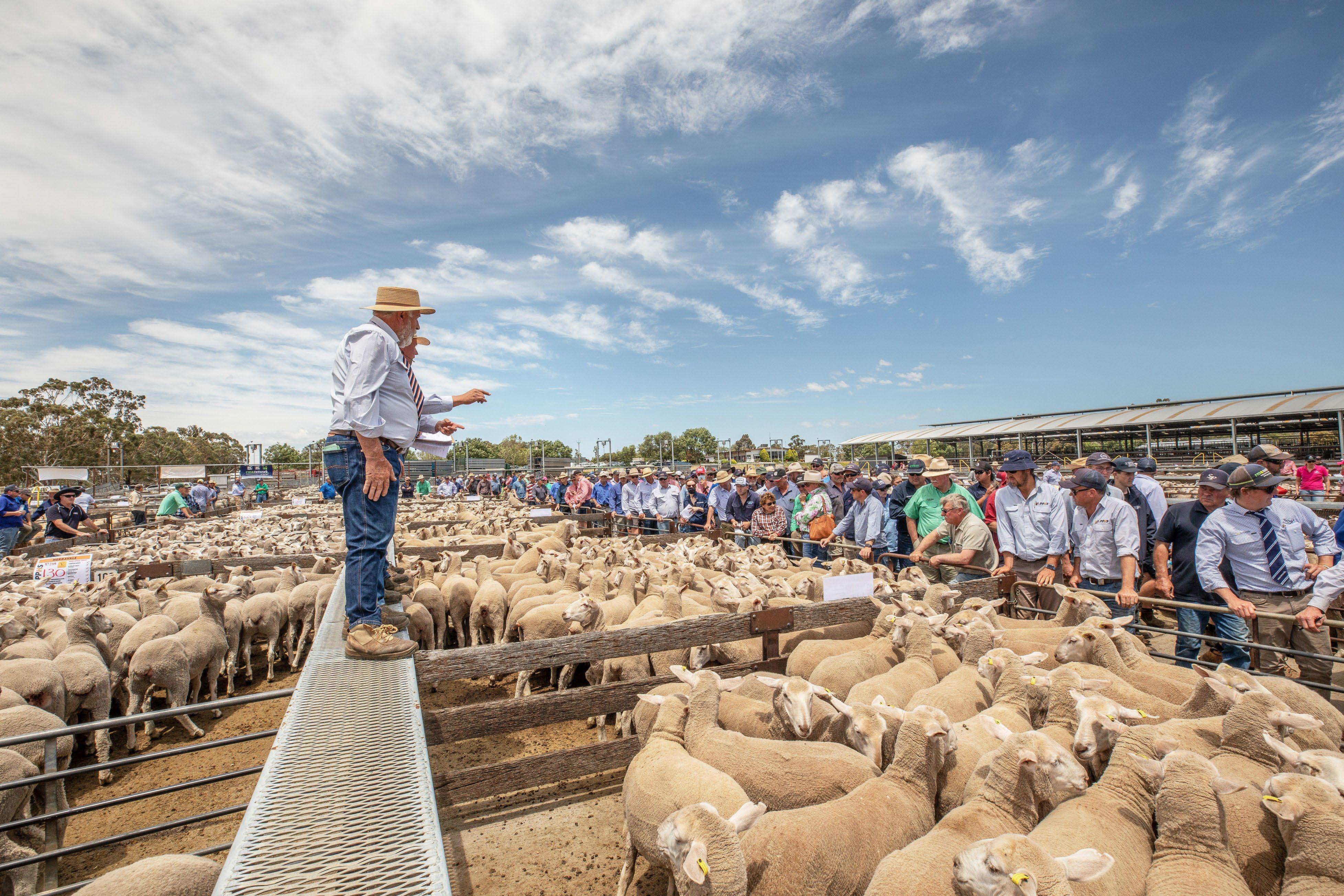
Facilitating and supporting sustainable growth to achieve economic prosperity.
Comment Completed
Did not progress due to Covid 19 restrictions placed on travel. No Caves Connection Project
NLBTA contribution to TV commercial promoting the district
Completion of the Naracoorte Caves trail Yes Continue implementation of Wayfinding Project – directional signage (includes signage for the Old Caves Road route to the Naracoorte Caves)
New wayfinding signage installed at the Old Caves Road intersection and Promotional banners installed on Naracoorte’s Northern & Western Entrances
Yes
Introduction of Augmented Reality App
• Cattle yards dust suppression sprinkler system installation to improve user comfort
• Weighbridge gate modification to improve stock handling efficiencies
• Upgrade of Travelling Irrigator and Hydrants to improve EPA compliance
• Upgrade of Cattle Scanning Equipment to improve stock handling efficiency
All
Did not progress No Continue upgrade of the Naracoorte Regional Livestock Exchange
Encourage new ideas and ways of doing business by continuing the Business Innovation Grant
Undertook a review of the Business Innovation Grant Program Yes
Lucindale Airstrip contribution to upgrade (subject to grant funding)
Project deferred to 2022 2023 No
No grant funding received No Improved town entrances with an avenue of trees along Stewart Terrace near the Sports Centre and installation of irrigation at the Deviation Road / Gordon Street intersection
NRLE Truck Wash Settling Area Modification
NRLE Cattle Yards Roof Extension
NRLE Cattle D Yards Replacement
NRLE Cattle Unloading Ramp Upgrade
Lighting Upgrade to MacDonnell Street Entry Sign Boddingtons West Road Upgrade
Roberston Street Stage 4 Streetscape Upgrade
Binnum Benayeo Road Stage 1 Sealed Road Construction Moyhall Road Unsealed Road Resheet


Working together to protect and enhance our natural environment for the future.
Investigate options for improved innovative waste management
Implementation of the Naracoorte Creek & Creek Walk Plan – includes a hydrological assessment and construction of a weir at the Park Terrace bridge, interpretive signage at 55 Ormerod Street and along the creek walk, resealing of the north parklands path from the cemetery to the swimming lake, heritage signage in the rail lands and permanent signage for the Parkrun.
Naracoorte Lucindale Council are working with the Limestone Coast Local Government Association Waste Steering Committee
• Sealed path North Parklands
• Interpretive Signage 55 Ormerod Street
• Hydrological Assessment commenced (weir construction included in 21 22 budget) Additional flood monitoring has been undertaken for Landscape SA assessment
Ongoing
Fire Mitigation Undertook a fuel reduction burn for the North Parklands Stage 1 and maintained fire breaks. Issued 105f Notices where required throughout the district.
Gares Swamp Restoration Annual maintenance and pest plant removal undertaken
Improved stormwater management for Foster Street, Naracoorte
Installation of new stormwater system Yes
Priorities 2022-23
Naracoorte Creek Weir construction
Naracoorte Creek Walk signage
Frances Masterplan walking trail
North Parklands fuel reduction burn Stage 2 Lucindale town entrance statements


A safe, healthy, and diverse
Planned Projects 2021 22 Comments Completed Community Art Program Grant Program
Naracoorte Library
Development at new location 93 Smith Street, Naracoorte
Development of a natural burial ground at the Naracoorte cemetery and improvements to the historic section
Fossil sculpture installed at Memorial Parklands & composition and performance of a musical track to complement ‘Vaudeville’ production.
Naracoorte Library redevelopment completed February 2022
Cemetery Working Group established to assist with developing plans for the beautification of the Cemetery, improved signage and future expansion.
Ongoing annually
Complete
Ongoing
Public Art Project
‘Welcome’ mural at rear of Naracoorte Town Hall and sculpture in front of Naracoorte Library
Contributed $100,000 towards this project Yes
Complete Contribution to upgrading the Naracoorte Netball & Tennis Courts
Sponsorship provided to annual programs, community events, festivals and community facilities
Council events
• Lucindale Christmas Party
• Continued support of Naracoorte Art Gallery
• Naracoorte Horse Trials (3 day event)
• South East Field Days
• TASTE the Limestone Coast Festival
• Fringe Festival
• Harmony Day
• Multicultural Soccer Carnival
• Remembrance Day
• ANZAC Day
• Garage Sale Trail
• MegaFest
• Short Film & Photo Competition
• Citizenship ceremonies
Implementation of the Disability Access Plan –permanent access ramp to the Sound Shell
New all access ramp installed January 2022
Priorities 2022-23
Ongoing implementation of the Naracoorte Lucindale Wellbeing Program
Delivery of Country Arts SA programming and events
Updated Naracoorte Lucindale Visitor Information Guide
Continued delivery of Council events schedule



A range of well-planned neighbourhoods and public space, designed with a strong sense of identity and place.
Lucindale Masterplan
Implementation - includes signage, detailed design for the footpaths / shared paths, vegetation guidelines and the CBD precinct and vegetation planting.
Implementation – includes signage, protection of Beekeeper Cave and establishment of the caves linear trail from Michael’s Road to Pitts Lane shelter.
Implementation – concept for walkways at the Naracoorte Swimming Lake.
Frances Masterplan
Implementation – – includes artwork (red tailed black cockatoo), entrance statements, completion of the town centre focal point, marketing as an alternative route and promotion.
Staged implementation with wayfinding signage installed and design for new entrance statements completed.
Partial
• Trail completed from Michael’s Road to Pitts Lane shelter
• Interpretative signage project commenced
• Beekeeper Cave project withdrawn
Masterplan for Naracoorte Swimming Lake to be development in 2021 22; project deferred until completion of this project
The new Town Square was completed and officially opened by the Federal Members for Barker Mr. Tony Pasin MP. Red Tailed Black Cockatoo Art W ork Installed and new entrances statements completed at three intersections into the township.
Yes
Partial
Yes
Cockatoo Lake replace shelter shed
Replaced in full with new colourbond iron. Yes Naracoorte Swimming Lake – development of Master Plan, painting of the lake walls and pontoon replacement
Masterplan development commenced, lake walls repainted and pontoon upgrade completed.
Some playground equipment still to be installed due to international shipping delays.
Partial
Partial McTernan Park upgrade aged infrastructure
Cedar Avenue and Schinkel Road Footpath construction Market Square Playground Upgrade Street Lighting to Strain Street and Kingston Avenue
Detailed design of improvements to Pioneer Park, Naracoorte Detailed design of Naracoorte Town Centre Rejuvenation Plan Upgrade of Naracoorte Swimming Lake changerooms


A well led and managed district supported by a professional approach to managing infrastructure, and the delivery of projects and services to the community.
Planned Projects 2021-22 Comments Completed
Cloud migration Currently upgrading internet speed and capability before proceeding with cloud migration No Livestreaming of Council Meetings
Continued renewal & replacement of infrastructure (refer budget and major projects for full details) including:
Continued renewal & replacement of buildings & structures including:
Sourcing information regarding appropriate systems for implementation Partial
• Sealed road construction
• Footpath construction
• Kerb & watertable
• Unsealed road reconstruction
• Reseals
• Resheeting
• Fleet, Plant & Machinery
• Lucindale CBD Amenities upgrade flooring, replace toilet and vanities.
• Market Square Amenities – install privacy screen.
• Memorial Oval Amenities – new amenities block
• Naracoorte CBD Amenities – modify front entrance paving and CCTV installed.
• Naracoorte Depot – solar power system installed
• Lucindale Hall – upgrade switchboard, install emergency exit door, install rainwater tanks
• Naracoorte Hall replace carpet and kitchen tiles
All
Priorities 2022-23
Implementation of new Asset Management System
Completion of livestreaming project for Council Meetings
Implementation of new Strategic Management Plan reporting system
Installation of solar panels on Naracoorte Council office
Continued upgrades to Naracoorte Town Hall including replacing seating and carpet New amenities at Naracoorte Cemetery
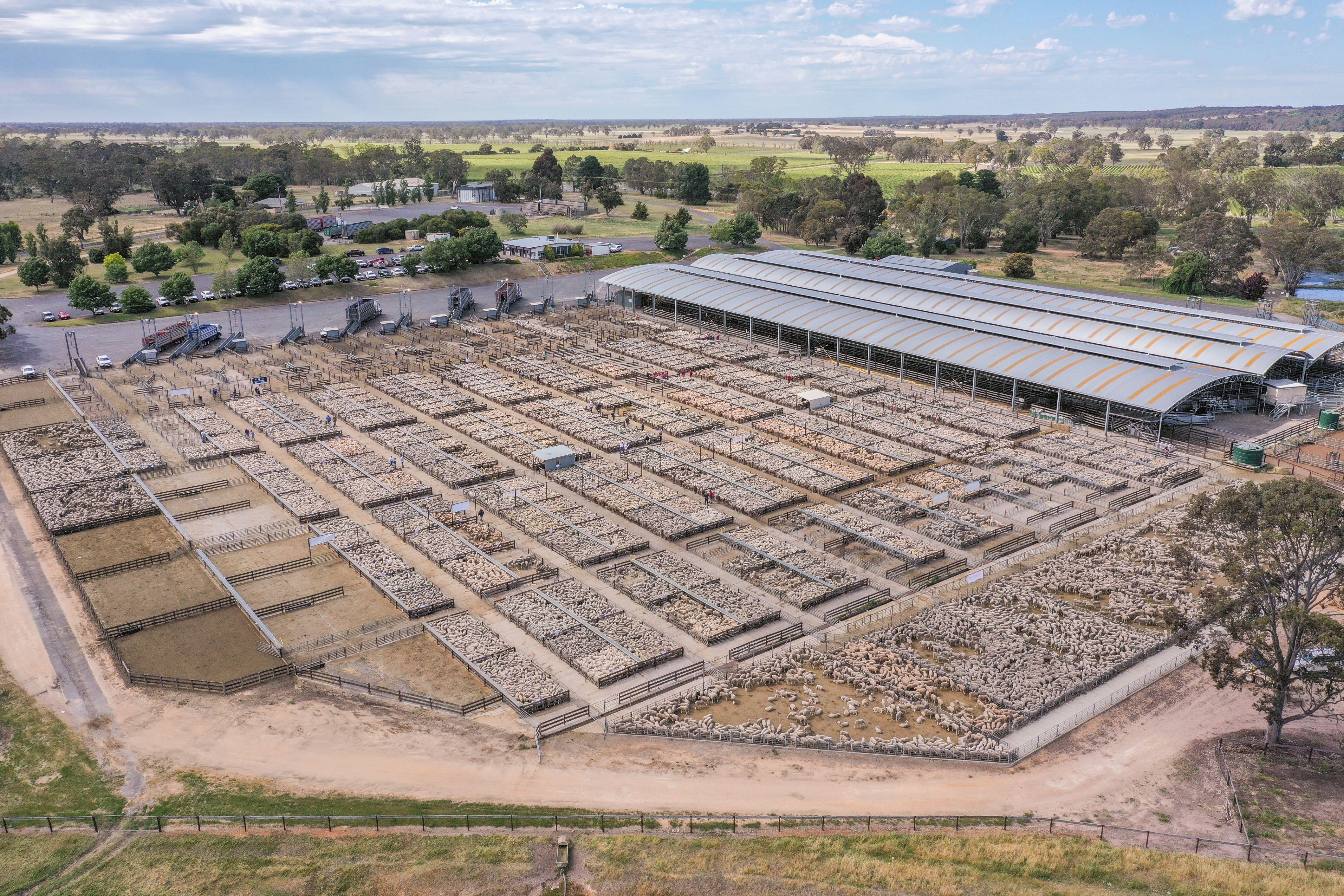

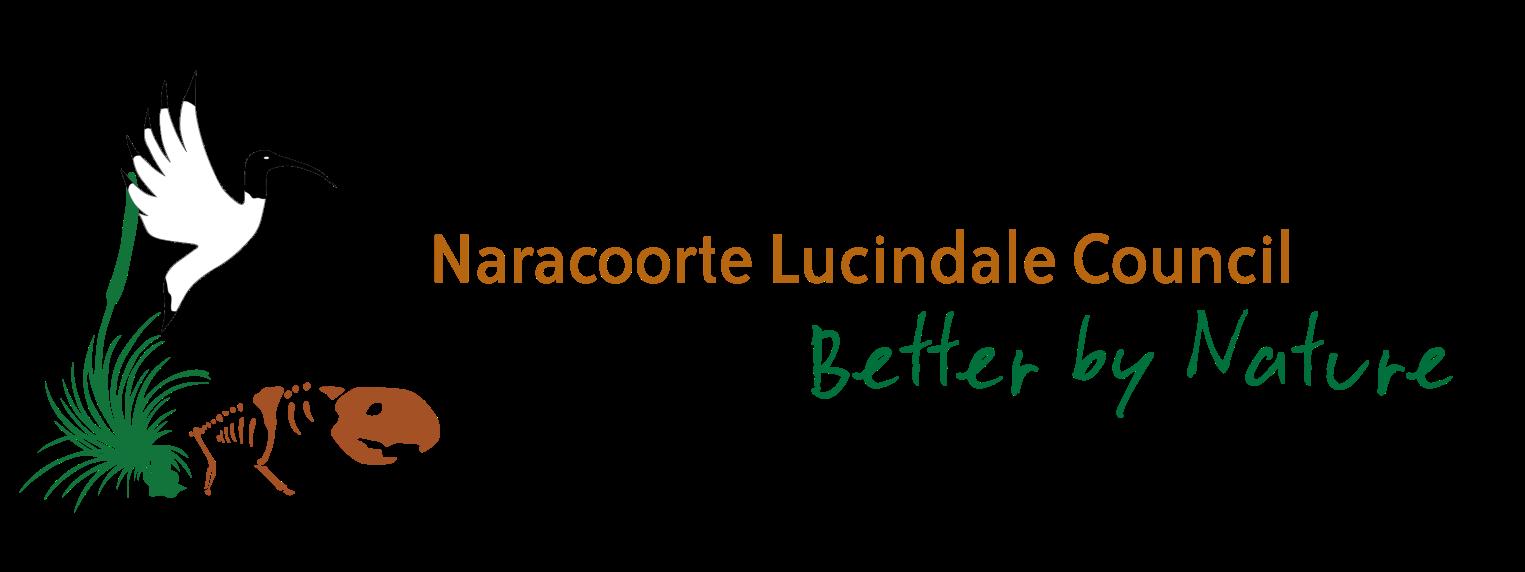
the year ended 30 June 2021 Table of Contents
Council Certificate
Statement of Comprehensive Income 2
Statement of Financial Position 3
Statement of Changes in Equity 4 Statement of Cash Flows 5
Notes to, and forming part of, the Principal Financial Statements
Note 1 - Significant Accounting Policies N1
Note 2 - Income N7
Note 3 - Expenses N10
Note 4 - Asset Disposal & Fair Value Adjustments N12
Note 5 - Current Assets N13
Note 6 - Non-Current Assets N14
Note 7 - Infrastructure, Property, Plant & Equipment & Investment Property N15
Note 8 - Liabilities N23
Note 9 - Reserves N24
Note 10 - Assets Subject to Restrictions N26
Note 11 - Reconciliation of Cash Flow Statement N27
Note 12 - Functions N28
Note 13 - Financial Instruments N30
Note 14 - Expenditure Commitments N34
Note 15 - Financial Indicators N35
Note 16 - Uniform Presentation of Finances N36
Note 17 - Operating Leases N37
Note 18 - Superannuation N38
Note 19 - Contingent Assets & Contingent Liabilities N39
Note 20 - Related Party Transactions N40
Audit
-
-
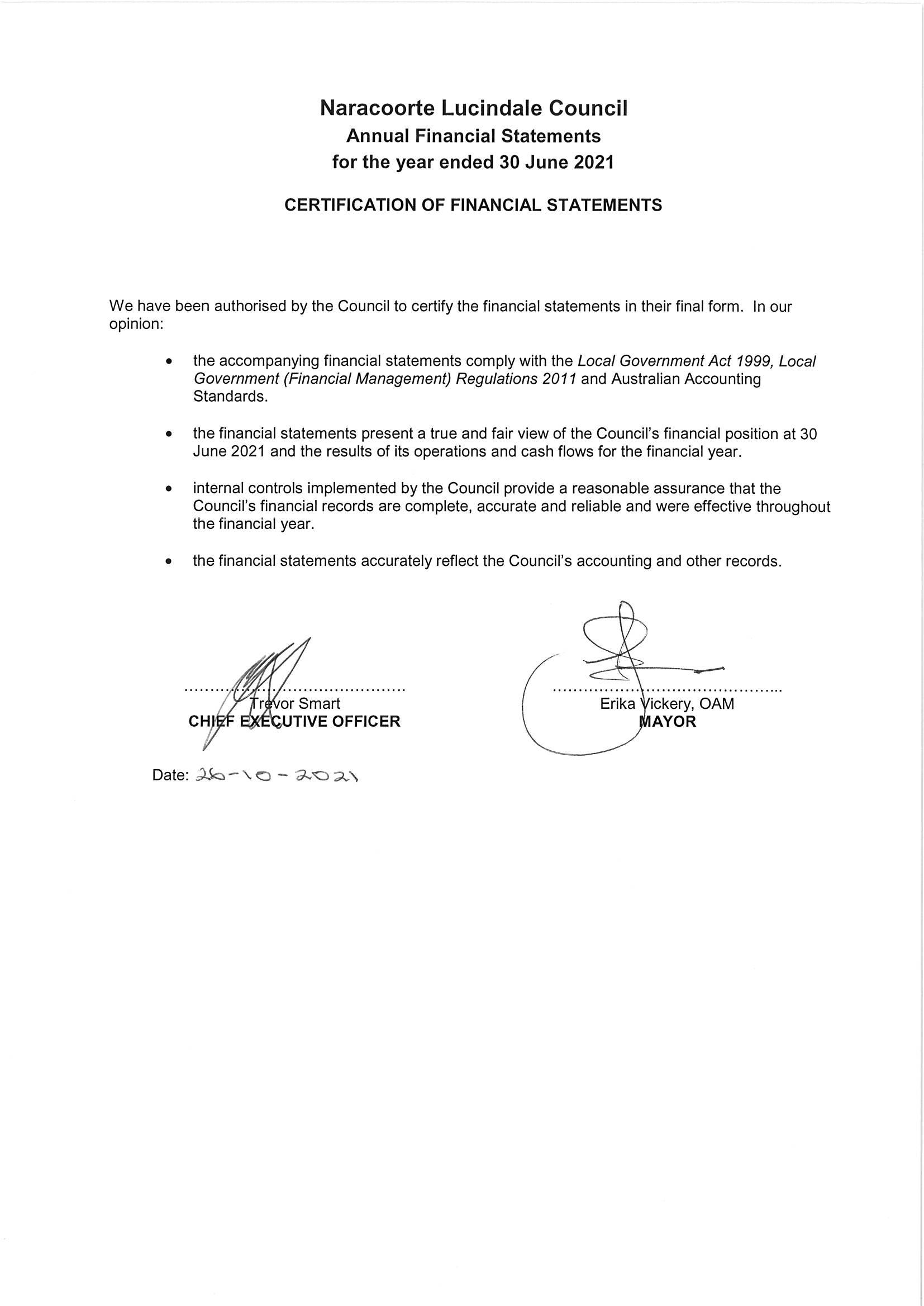
Statement of Comprehensive Income for the year ended 30 June 2021
Rates 2 12,464 12,450
Statutory charges 2 369 243
User charges 2 2,333 2,067
Grants, subsidies and contributions 2 4,196 3,768 Investment income 2 77 129
Reimbursements 2 50 112 Other income 2 375 331
Total Income 19,864 19,100
EXPENSES
Employee costs 3 5,079 4,905
Materials, contracts & other expenses 3 6,378 5,952
Depreciation, amortisation & impairment 3 5,785 5,543
Finance costs 3 94 124
Total Expenses 17,336 16,524
OPERATING SURPLUS / (DEFICIT) 2,528 2,576
Asset disposal & fair value adjustments 4 (1,273) (1,834) Amounts received specifically for new or upgraded assets 2 697 808
NET SURPLUS / (DEFICIT) (transferred to Equity Statement) 1,952 1,550
Other Comprehensive Income Amounts which will not be reclassified subsequently to operating result
Changes in revaluation surplus - infrastructure, property, plant & equipment 9 14,380 5,590

Total Other Comprehensive Income 14,380 5,590
TOTAL
INCOME 16,332 7,140
This Statement is to be read in conjunction with the attached Notes.
Non-current
Current
10,524 7,269
893 1,025
594 600
12,011 8,894
267 342
197,846 185,308
554 511
198,667 186,161
210,678 195,055
1,691 1,747
493 509
1,048 1,186

3,232 3,442
924 1,416
1,088 1,587
4,320 5,029
206,358 190,026
49,603
2,568
206,358 190,026
Statement of Changes in Equity for the year ended 30 June 2021
Acc'd
Asset Rev'n
2021 Notes $'000 $'000 $'000 $'000
Balance at end of previous reporting period 49,603 137,855 2,568 190,026
Net Surplus / (Deficit) for Year 1,952 1,952
Other Comprehensive Income Gain on revaluation of infrastructure, property, plant & equipment 14,380 14,380
Transfers between reserves (222) - 222Balance at end of period
51,333 152,235 2,790 206,358
Acc'd
Asset Rev'n
Other
2020 Notes $'000 $'000 $'000 $'000
Balance at end of previous reporting period 47,864 132,265 2,757 182,886
Net Surplus / (Deficit) for Year 1,550 1,550
Other Comprehensive Income Changes in revaluation surplus - infrastructure, property, plant & equipment 5,590 5,590

Transfers between reserves 189 (189)
Balance at end of period
This Statement is to be read in
49,603 137,855 2,568 190,026
of
the year ended
June
CASH FLOWS FROM OPERATING ACTIVITIES Notes $'000 $'000
Receipts:
Rates - general & other 12,653 12,468
Fees & other charges 370 259
User charges 2,535 2,235
Investment receipts 79 143
Grants utilised for operating purposes 4,197 4,051
Reimbursements 43 237
Other revenues 1,083 1,528
Payments: Employee costs (5,193) (4,909)
Materials, contracts & other expenses (7,371) (7,892)
Finance payments (103) (131)
Net Cash provided by (or used in) Operating Activities 8,293 7,989
Receipts:
Amounts specifically for new or upgraded assets 697 808
Sale of replaced assets 336 180
Repayments of loans by community groups 79 53 Payments:
Expenditure on renewal/replacement of assets (4,186) (8,623) Expenditure on new/upgraded assets (1,390) (2,418)
Net Cash provided by (or used in) Investing Activities (4,464) (10,000)
Receipts:
Proceeds from Leasing - 107
Payments:
Repayments of borrowings (449) (422)
Repayment of principal portion of lease liabilities (59)
Repayment of aged care facility deposits (66) (153)

Net Cash provided by (or used in) Financing Activities (574) (468)
Net Increase (Decrease) in cash held 3,255 (2,479)
Cash & cash equivalents at beginning of period
& cash equivalents at end of period
This Statement is to be read in conjunction with the attached
7,269 9,748
10,524 7,269
The principal accounting policies adopted in the preparation of the financial report are set out below. These policies have been consistently applied to all the years presented, unless otherwise stated.

This general purpose financial report has been prepared in accordance with Australian Accounting Standards as they apply to not for profit entities, other authoritative pronouncements of the Australian Accounting Standards Board, Interpretations and relevant South Australian legislation.
The financial report was authorised for issue by certificate under regulation 14 of the Local Government (Financial Management) Regulations 2011 dated 26 October 2021
Except as stated below, these financial statements have been prepared in accordance with the historical cost convention.
The preparation of financial statements in conformity with Australian Accounting Standards requires the use of certain critical accounting estimates, and requires management to exercise its judgement in applying Council’s accounting policies. The areas involving a higher degree of judgement or complexity, or areas where assumptions and estimates are significant to the financial statements are specifically referred to in the relevant sections of this Note.
All amounts in the financial statements have been rounded to the nearest thousand dollars ($’000).
The COVID 19 pandemic has impacted the 2020/21 financial statements, which may impact on the comparability of some line items and amounts reported in these financial statements and/or the notes. The financial impacts are a direct result of either Council’s response to the pandemic or due to mandatory shutdowns as directed by the Australian Government and the advice from the Australian Government Department of Health and SA Health.
Examples include: additional leave paid to employees due to short notice shutdowns and the delay on completion of projects due to cross border closures and delays associated with sourcing materials.
COVID 19 is not expected to have a significant financial impact on Council operations. The budget assumptions for 2021/22 assume that no further harsher restrictions are put in place by the government. However, Council has determined that there is no material uncertainty that casts doubt on Council’s ability to continue as a going concern.
Naracoorte Lucindale Council is incorporated under the SA Local Government Act 1999 and has its principal place of business at DeGaris Place, Naracoorte. These consolidated financial statements include the Council’s direct operations and all entities through which Council controls resources to carry on its functions. In the process of reporting on the Council as a single unit, all transactions and balances between activity areas and controlled entities have been eliminated.

The Council recognises revenue under AASB 1058 Income of Not for Profit Entities (AASB 1058) or AASB 15 Revenue from Contracts with Customers (AASB 15) when appropriate.
In cases where there is an ‘enforceable’ contract with a customer with ‘sufficiently specific’ performance obligations, the transaction is accounted for under AASB 15 where income is recognised when (or as) the performance obligations are satisfied (i.e. when it transfers control of a product or service to a customer).
Revenue is measured based on the consideration to which the Council expects to be entitled in a contract with a customer.
In other cases, AASB 1058 applies when a not for profit (NFP) entity enters into transactions where the consideration to acquire an asset is significantl y less than the fair value of the asset principally to enable the entity to further its objectives. The excess of the asset recognised (at fair value) over any ‘related amounts’ is recognised as income immediately, except in the case where a financial asset has been received to enable the council to acquire or construct a recognisable non financial asset that is to be controlled by the council. In this case, the council recognises the excess as a liability that is recognised over time in profit and loss when (or as) the entity satisfies its obligations under the transfer.
In recent years the payment of untied grants (financial assistance grants/ local roads/ supplementary grants) has varied from the annual allocation as shown in the table below:
2018 19 $4,093,343 $3,436,848 + $656,495
2019 20 $3,063,349 $3,438,421 $375,072
2020 21 $3,435,913 $3,229,581 + $206,332
Because these grants are untied, the Australian Accounting Standards require that payments be recognised upon receipt. Accordingly, the operating results of these periods have been distorted compared to those that would have been reported had the grants been paid in the year to which they were allocated.
The Operating Surplus Ratio disclosed in Note 15 has also been calculated after adjusting for the distortions resulting from the differences between the actual grants received and the grants entitlements allocated.
Construction works undertaken by Council for third parties are generally on an agency basis where the third party reimburses Council for actual costs incurred, and usually do not extend beyond the reporting period. Reimbursements not received are recognised as receivables and reimbursements received in advance are recognised as “payments received in advance”.
For works undertaken on a fixed price contract basis, revenues are recognised over time using the input method, with costs incurred compared to total expected costs used as a measure of progress. When it is probable that total contract costs will exceed total contract revenue, the expected loss is recognised as an expense immediately.
Naracoorte Lucindale CouncilNote 1 SIGNIFICANT ACCOUNTING POLICIES (con’t)
Note 1 SIGNIFICANT ACCOUNTING POLICIES (con’t)
Cash Assets include all amounts readily convertible to cash on hand at Council’s option with an insignificant risk of changes in value with a maturity of three months or less from the date of acquisition
Receivables for rates and annual charges are secured over the subject land, and bear interest at rates determined in accordance with the Local Government Act 1999. Other receivables are generally unsecured and do not bear interest.
All receivables are reviewed as at the reporting date and adequate allowance made for amounts the receipt of which is considered doubtful.
All financial instruments are recognised at fair value at the date of recognition. A detailed statement of the accounting policies applied to financial instruments also form part of Note 13
Inventories held in respect of stores have been valued on a cost basis, after adjustment for loss of service potential. Inventories held in respect of business undertakings have been valued at the lower of cost and net realisable value
All assets are initially recognised at cost. For assets acquired at no cost or for nominal consideration, cost is determined as fair value at the date of acquisition.
All non current assets purchased or constructed are capitalised as the expenditure is incurred and depreciated as soon as the asset is held “ready for use”. Cost is determined as the fair value of the assets given as consideration plus costs incidental to the acquisition, including architects' fees and engineering design fees and all other costs incurred. The cost of non current assets constructed by the Council includes the cost of all materials used in construction, direct labour on the project and an appropriate proportion of variable and fixed overhead.
Capital works still in progress at balance date are recognised as other non current assets and transferred to infrastructure, property, plant & equipment when completed ready for use

Assets with an economic life in excess of one year are only capitalised where the cost of acquisition exceeds materiality thresholds established by Council for each type of asset. In determining (and in annually reviewing) such thresholds, regard is had to the nature of the asset and its estimated service life. Examples of capitalisation thresholds applied during the year are given in Note 7. No capitalisation threshold is applied to the acquisition of land or interests in land
All material asset classes are revalued on a regular basis such that the carrying values are not materially different from fair value. Significant uncertainties exist in the estimation of fair value of a number of asset classes including land, buildings and associated structures and infrastructure. Further detail of these uncertainties, and of existing valuations, methods and valuers are provided at Note 7
Naracoorte Lucindale CouncilOther than land, all infrastructure, property, plant and equipment assets recognised are systematically depreciated over their useful lives on a straight line basis which, in the opinion of Council, best reflects the consumption of the service potential embodied in those assets.
Depreciation methods, useful lives and residual values of classes of assets are reviewed annually.
Major depreciation periods for each class of asset are shown in Note 7. Depreciation periods for infrastructure assets have been estimated based on the best information available to Council, but appropriate records covering the entire life cycle of these assets are not available, and extreme care should be used in interpreting financial information based on these estimates
Assets whose future economic benefits are not dependent on the ability to generate cash flows, and where the future economic benefits would be replaced if Council were deprived thereof, are not subject to impairment testing.
Other assets that are subject to depreciation are reviewed for impairment whenever events or changes in circumstances indicate that the carrying amount may not be recoverable. An impairment loss is recognised for the amount by which the asset’s carrying amount exceeds its recoverable amount (which is the higher of the present value of future cash outflows or value in use).
Where an asset that has been revalued is subsequently impaired, the impairment is first offset against such amount as stands to the credit of that class of assets in Asset Revaluation Reserve, any excess being recognised as an expense
Creditors are amounts due to external parties for the supply of goods and services and are recognised as liabilities when the goods and services are received. Creditors are normally paid 30 days after the month of invoice. No interest is payable on these amounts
Amounts received from external parties in advance of service delivery, and security deposits held against possible damage to Council assets, are recognised as liabilities until the service is delivered or damage reinstated, or the amount is refunded as the case may be

Loans are carried at their principal amounts which represent the present value of future cash flows associated with servicing the debt. Interest is accrued over the period to which it relates, and is recorded as part of “Payables”.
Liabilities for employees’ entitlements to salaries, wages and compensated absences expected to be paid or settled within 12 months of reporting date are accrued at nominal amounts (including payroll based on costs) measured in accordance with AASB 119.
Liabilities for employee benefits not expected to be paid or settled within 12 months are measured as the present value of the estimated future cash outflows (including payroll based on costs) to be made in respect of services provided by employees up to the reporting date. Present values are calculated using government guaranteed securities rates with similar maturity terms.
Naracoorte Lucindale CouncilNote 1 SIGNIFICANT ACCOUNTING POLICIES (con’t)
Weighted average discount rate 0.26% (2020, 0.25%)
No accrual is made for sick leave as Council experience indicates that, on average, sick leave taken in each reporting period is less than the entitlement accruing in that period, and this experience is expected to recur in future reporting periods.
The Council makes employer superannuation contributions in respect of its employees to the Statewide Superannuation Scheme. The Scheme has two types of membership, each of which is funded differently. Details of the accounting policies applied and Council’s involvement with the schemes are reported in Note 18.
Close down and restoration costs include the dismantling and demolition of infrastructure and the removal of residual materials and remediation and rehabilitation of disturbed areas. Estimated close down and restoration costs are provided for in the accounting period when the obligation arising from the related disturbance occurs and are carried at the net present value of estimated future costs.
Although estimated future costs are based on a closure plan, such plans are based on current environmental requirements which may change. Council’s policy to maximise recycling is extending the operational life of these facilities, and significant uncertainty exists in the estimation of the future closure date.
The Council assesses at contract inception whether a contract is, or contains, a lease. That is, if the contract conveys the right to control the use of an identified asset for a period of time in exchange for consideration.
The Council recognises lease liabilities to make lease payments and right of use assets representing the right to use the underlying assets.
The Council recognises right of use assets at the commencement date of the lease. Right of use assets are measured at cost, less any accumulated depreciation and impairment losses, and adjusted for any remeasurement of lease liabilities. The cost of right of use assets includes the amount of lease liabilities recognised, initial direct costs incurred, lease payments made at or before the commencement date less any lease incentives received and the estimate of costs to be incurred to restore the leased asset. Right of use assets are depreciated on a straight line basis over the shorter of the lease term and the estimated useful lives of the assets, as follows:

The right of use assets are also subject to impairment. Refer to the accounting policies in section 6.5 Impairment of non financial assets above.
At the commencement date of the lease, the Council recognises lease liabilities measured at the present value of lease payments to be made over the lease term. In calculating the present value of lease payments, the Council uses its incremental borrowing rate or the interest rate implicit in the lease.
Naracoorte Lucindale CouncilThe Council applies the short term lease recognition exemption to its short term leases of machinery and equipment (i.e., those leases that have a lease term of 12 months or less from the commencement date).
It also applies the low value assets recognition exemption to leases of office equipment that are considered to be low value. Lease payments on short term leases and leases of low value assets are recognised as expense on a straight line basis over the lease term.
In accordance with UIG Abstract 1031 “Accounting for the Goods & Services Tax”
• Receivables and Creditors include GST receivable and payable.

• Except in relation to input taxed activities, revenues and operating expenditures exclude GST receivable and payable.
• Non current assets and capital expenditures include GST net of any recoupment.
• Amounts included in the Statement of Cash Flows are disclosed on a gross basis.
The Council applied for the first time certain standards and amendments, which are effective for annual periods beginning on or after 1 January 2020. New standards and amendments relevant to the Council are listed below. The Council has not early adopted any other standard, interpretation or amendment that has been issued but is not yet effective
Amendments to AASB 101 and AASB 108 Definition of Material:
The amendments provide a new definition of material that states, “information is material if omitting, misstating or obscuring it could reasonably be expected to influence decisions that the primary users of general purpose financial statements make on the basis of those financial statements, which provide financial information about a specific reporting entity.” The amendments clarify that materiality will depend on the nature or magnitude of information, either individually or in combination with other information, in the context of the financial statements. A misstatement of information is material if it could reasonably be expected to influence decisions made by the primary users. These amendments had no impact on the financial statements of, nor is there expected to be any future impact to the Council.
Amendments to AASB 16 Covid 19 Related Rent Concessions:
In 2020, the AASB issued AASB 2020 4, Amendments to AASs Covid 19 Related Rent Concessions. The amendments provide relief to lessees from applying AASB 16 guidance on lease modification accounting for rent concessions arising as a direct consequence of the Covid 19 pandemic. As a practical expedient, a lessee may elect not to assess whether a Covid 19 related rent concession from a lessor is a lease modification. A lessee that makes this election accounts for any change in lease payments resulting from the Covid-19 related rent concession the same way it would account for the change under IFRS 16 if the change were not a lease modification. The amendment applies to annual reporting periods beginning on or after 1 June 2020. This amendment had no impact on the consolidated financial statements of the Council
Naracoorte Lucindale CouncilNotes to and forming part of the Financial Statements for the year ended 30 June 2021
Note 1 SIGNIFICANT ACCOUNTING POLICIES (con’t)
and forming part of the
the year ended 30 June 2021
- INCOME
2021 2020
$'000 $'000
General Rates 10,798 10,806
Less: Mandatory Rebates (152) (157)
Less: Discretionary Rebates, Remissions & Writeoffs (36) (35) 10,610 10,614
Other Rates (including service charges)
Natural Resource Management Levy 647 655 Waste Collection 1,061 1,016 Community Wastewater Management Systems 98 97 1,806 1,768
Other
Penalties for Late Payment 44 53
& Other Costs Recovered 17 32 61 85
Less: Discretionary rebates, remissions & write offs (13) (17) 12,464 12,450
STATUTORY CHARGES
Development Act fees 120 58
Planning Fees 79 75
& Septic Tank Inspection Fees 75 25

Registration Fees & Fines 63 61
Fines / Expiation Fees 2 5
Control Fines 3
Licences, Fees, & Fines 27 19
Cemetery Fees 89 106
Exchange Fees and Charges 1,819 1,737
Permits and Rental Income 98 118
& Equipment Hire 16 31
- General 301 55
10 20 2,333 2,067
Interest on Investments:
Government Finance Authority 49 95
& Other 19 20
to Community Groups
Notes to and forming part of the Financial Statements for the year ended 30 June 2021
Note 2 - INCOME (con't)
2021 2020
Notes $'000 $'000
Private Works 10 28 Other 40 84 50 112
OTHER INCOME
Insurance & Other Recoupments - Infrastructure, Property, Plant & Equipment 204 89

Rebates Received 52 58 Sundry 119 184 375 331
Amounts Received Specifically for new or Upgraded Assets 697 808
Other Grants, Subsidies and Contributions Untied - Financial Assistance Grant 3,436 3,063 Roads to Recovery 492 492 Library & Communications 56 58 Sundry 212 155 4,196 3,768 4,893 4,576
The functions to which these grants relate are shown in Note 12.
Sources of grants
Commonwealth government 847 554 State government 3,996 3,975 Other 50 47 4,893 4,576
Notes to and forming part of the Financial Statements for the year ended 30 June 2021 Note 2 - INCOME (con't)
2021 2020 Conditions over grants & contributions Notes $'000 $'000
Grants and contributions which were obtained on the condition that they be expended for specified purposes or in a future period, but which are not yet expended in accordance with those conditions, are as follows:
Unexpended at the close of the previous reporting period 141
Less: expended during the current period from revenues recognised in previous reporting periods:
Roads Infrastructure - (50) Heritage & Cultural Services - (91)
Subtotal (141)
Plus: amounts recognised as revenues in this reporting period but not yet expended in accordance with the conditions

Unexpended at the close of this reporting period
Roads Infrastructure Heritage & Cultural Services Subtotal- (141)
Net increase / (decrease) in assets subject to conditions in the current reporting period
Notes to and forming part of the Financial Statements for the year ended 30 June 2021
3 - EXPENSE
2021 2020 Notes $'000 $'000
Salaries and Wages 4,161 3,914 Employee leave expense 882 927
Superannuation - defined contribution plan contributions 18 338 342

Superannuation - defined benefit plan contributions 18 91 99
Workers' Compensation Insurance 172 168 Other 80 84
Less: Capitalised and distributed costs (645) (629) Total Operating Employee Costs 5,079 4,905
Total Number of Employees 64 65 (Full time equivalent at end of reporting period)
Prescribed Expenses
Auditor's Remuneration - Auditing the Financial Reports 22 24 Elected Members' Expenses 236 192 Election Expenses 2 2
Lease Expenses - Short Term Leases 17 - 3 Lease Expenses - Low Value Assets 17 13 12 Subtotal - Prescribed Expenses 273 233
Contractors 928 915 Energy 545 626 Waste Management 1,210 1,115 Street Cleaning 150 144 Insurance 271 263 Quarry - Rubble Raising & Associated Costs 514 601 Subscriptions & Licences 324 312 Maintenance 928 915
Expenses 40 14
Levies paid to government - Regional Landscape Levy 652 658 - Other Levies 172 161 Parts, Accessories & Consumables 516 611 Professional Services 500 205 Sundry 530 558
Less: Capitalised and Distributed Costs (1,175) (1,379) Subtotal - Other Materials, Contracts & Expenses 6,105 5,719 6,378 5,952

Buildings & Other Structures (L2) 65 65 Buildings & Other Structures (L3) 366 350 Transfer Station 30 30
Furniture and Fittings 79 64 Site Improvements 142 118 Minor Plant 14 13 Plant & Equipment 406 387 Library Books - 31 CWMS - Infrastructure 49 49 - Plant & Equipment 6 6 Regional Livestock Exchange - Building Structures 342 303 - Plant, Equipment & Furniture 43 41 Swimming Lake
Building Structures 63 60
Plant, Equipment & Furniture 2 5 Aerodrome
Building Structures 98 96
Site Improvements 3 3 Infrastructure
Bridges & Drainage 59 54
Roads 3,402 3,336
Walkways 135 121
Kerb & Watertable 263 199
Stormwater & Culverts 159 157
of
17 59 55 5,785 5,543
91 120
3 4
part of the Financial
for the year ended 30 June 2021
2021 2020 Notes $'000 $'000
Assets renewed or directly replaced
Proceeds from disposal 336 180 Less: Carrying amount of assets sold 1,609 2,014 Gain (Loss) on disposal (1,273) (1,834)

NET GAIN (LOSS)
OF ASSETS (1,273) (1,834)
Notes to and forming part of the Financial Statements for the year ended 30 June 2021
Note 5 - CURRENT ASSETS
2021 2020
CASH & EQUIVALENT ASSETS Notes $'000 $'000
Cash on Hand and at Bank 148 556 Deposits at Call 7,061 3,900 Short Term Deposits & Bills, etc 3,315 2,813 10,524 7,269

Rates - General & Other 454 534 Accrued Revenues 62 73
Debtors - general 182 142 GST Recoupment 156 235 Prepayments 3 1 Loans to community organisations 36 40 893 1,025
Quarry Materials 504 534 Trading Stock - VIC 5 5 Fuel & Lubricants 34 35 General Stores 43 19 Other 8 7 594 600
Aggregate write-downs and other losses recognised as an expense, and reversals of these, were not material in amount in either year. All such reversals occurred principally as a result of clerical inaccuracies during stores operations.
Notes to and forming part of the Financial Statements
Naracoorte Lucindale Council for the year ended 30 June 2021 Note 6 - NON-CURRENT ASSETS
2021 2020
FINANCIAL ASSETS Notes $'000 $'000
Loans to community organisations 267 342
TOTAL FINANCIAL ASSETS 267 342
OTHER NON-CURRENT
Capital Works-in-Progress 554 511 554 511

Fair Value Level
Value Cost Acc' Dep'n Carrying Amount Fair Value Cost Acc' Dep'n Carrying Amount
Land (L2) 2 3,499 160 - 3,659 3,499 165 - 3,664
Land (L3) 3 9,337 - - 9,337 9,337 - - 9,337
Buildings & Other Structures (L2) 2 1,720 - (65) 1,655 1,720 - (130) 1,590 Buildings & Other Structures (L3) 3 20,942 809 (11,690) 10,061 20,924 937 (12,038) 9,823
Transfer Station 1,446 - (346) 1,100 1,446 - (376) 1,070
Furniture and Fittings - 952 (611) 341 - 829 (480) 349
Site Improvements - 3,922 (1,089) 2,833 - 4,449 (1,025) 3,424 Minor Plant - 367 (293) 74 - 349 (284) 65 Plant & Equipment - 7,847 (4,206) 3,641 - 7,884 (4,071) 3,813
Library Books - 715 (548) 167 - - -CWMS
- Infrastructure 3 3,678 - (1,731) 1,947 3,683 - (1,779) 1,904
- Plant & Equipment - 89 (70) 19 - 89 (76) 13 Regional Livestock
- Building Structures 3 9,261 1,583 (4,112) 6,732 8,947 1,905 (4,140) 6,712
- Plant, Equipment & Furniture - 371 (229) 142 - 356 (241) 115

Swimming Lake 3
- Building Structures 3,837 89 (2,434) 1,492 3,837 111 (2,497) 1,451
Plant, Equipment & Furniture - 57 (13) 44 - 60 (15) 45
Aerodrome 3
- Building Structures 3,660 - (1,746) 1,914 3,660 184 (1,844) 2,000
Site Improvements - 91 (29) 62 - 91 (32) 59
the year ended 30 June 2021
Value Cost
Dep'n

- Bridges & Drainage 3 5,917 623 (3,011) 3,529 6,540 47 (3,070) 3,517
- Roads 3 166,057 4,350 (57,514) 112,893 165,074 2,324 (43,776) 123,622
- Walkways 3 2,665 2,143 (1,337) 3,471 4,984 770 (1,883) 3,871
- Kerb & Watertable 3 10,011 2,522 (3,938) 8,595 15,712 142 (5,520) 10,334
- Stormwater & Culverts 3 12,968 4,187 (5,660) 11,495 16,734 74 (5,786) 11,022
of
- 160 (55) 105 - 160 (114) 46 254,998 31,037 (100,727) 185,308 266,097 20,926 (89,177) 197,846
237,107 40,165 (101,438) 175,834 254,998 31,037 (100,727) 185,308
(L3)
Buildings
Furniture
Structures
1,655

- - - - - 3,664
- - - - - 9,337
(65) - - - - 1,590
(366) - - - - 9,823
(30) - - - - 1,070
(79) - - - - 349
- - - - 3,424
- - - -
- - - - 3,813
2,000

- -
- - - 3,517
- - 13,227 123,622
- - - (166) 3,871
- - 1,872 10,334
- - (386)

Accounting procedure: Upon revaluation, the current new replacement cost and accumulated depreciation are re stated such that the difference represents the fair value of the asset determined in accordance with AASB 13 Fair Value Measurement: accumulated depreciation is taken to be the difference between current new replacement cost and fair value. In the case of land, fair value is taken to be the current replacement cost.
Highest and best use: For land which Council has an unfettered right to sell, the “highest and best use” recognises the possibility of the demolition or substantial modification of some or all of the existing buildings and structures affixed to the land.
Much of the land under Council’s care and control is Crown land or has been declared as community land under the provisions of the Local Government Act 1999. Other types of restrictions also exist.
For land subject to these restrictions, the highest and best use is taken to be the "highest and best use" available to Council, with a rebuttable presumption that the current use is the "highest and best use". The reason for the current use of a large proportion of Council’s assets being other than the “highest and best use” relates to Council’s principal role as the provider of services to the community, rather than the use of those assets for the generation of revenue.
For buildings and other structures on and in the land, including infrastructure, “highest and best use” is determined in accordance with the land on and in which they are situated.
Fair value hierarchy level 2 valuations: Certain land, and the buildings and structures thereon, are shown above as being based on fair value hierarchy level 2 valuation inputs. They are based on prices for similar assets in an active market, with directly or indir ectly observable adjustments for specific advantages or disadvantages attaching to the particular asset.
Fair value hierarchy level 3 valuations of land: Valuations of Crown land, community land and land subject to other restrictions on use or disposal, shown above as being based on fair value hierarchy level 3 valuation inputs, are based on prices for similar assets in an active market, but include adjustments for specific advantages or disadvantages attaching to the particular asset that are not directly or indirectly observable in that market, or the number and / or amount of observable adjustments of which are so great that the valuation is more fairly described as being based on level 3 valuation inputs.
Fair value hierarchy level 3 valuations of buildings, infrastructure and other assets: There is no known market for these assets and they are valued at depreciated current replacement cost. This method involves:
The determination of the cost to construct the asset (or its modern engineering equivalent) using current prices for materials and labour, the quantities of each being estimated based on recent experience of this or similar Councils, or on industry construction guides where these are more appropriate.
The calculation of the depreciation that would have accumulated since original construction using current estimates of residual value and useful life under the prime cost depreciation method adopted by Council.
This method has significant inherent uncertainties, relying on estimates of quantities of materials and labour, residual values and useful lives, and the possibility of changes in prices for materials and labour, and the potential for development of more efficient construction techniques.
Capitalisation thresholds used by Council for a representative range of assets are shown below. No capitalisation threshold is applied to the acquisition of land or interests in land.
Office Furniture & Equipment $ 1,000 Information Technology $ 500
Other Plant and Equipment $ 1,000
Buildings New Construction / Extensions $10,000 Buildings fit out or services $ 1,000

Park & Playground Equipment $ 2,500
Road Construction and Reconstruction $10,000
Paving & Footpaths, Kerb & Gutter $10,000
Kerb & Watertable $ 5,000
Bridges & Culverts $ 5,000 Spoon Drains $ 2,500 Stormwater $10,000
Artworks $ 1,000
Estimated Useful Lives: Useful lives are estimated for each individual asset. In estimating useful lives, regard is had to technical and commercial obsolescence, as well as legal and other limitations on continued use. The range of useful lives for a representative range of assets is shown below, although individual assets may have an estimated total useful life of greater or lesser amount:
Plant, Furniture & Equipment
Office Equipment Computerised 2 to 10 years
Office Furniture & Equipment 5 to 15 years
Vehicles and Road making Equip 5 to 15 years Minor Plant & Equipment 3 to 15 years
Buildings masonry 50 to 100 years
Buildings other construction 20 to 80 years Memorials 40 to 100 years
Park Structures other construction 30 years Playground equipment 5 to 25 years
Benches, seats, etc 5 to 15 years
Infrastructure
Seals Upper 20 to 40 years
Seals Lower 80 to 120 years
Asphalt 40 years
Pavement Sealed Road 80 to 120 years
Pavement Rubble Road 20 to 80 years
Sub Pavement Rubble Road 80 to 999 years
Bridges 60 to 100 years
Paving & Footpaths 25 to 50 years
Kerb & Watertable 60 to 80 years
Stormwater Drainage 60 to 300 years
Artworks indefinite
NOTES TO AND FORMING PART OF THE FINANCIAL STATEMENTS for the year ended 30 June 2020
Council being of the opinion that it is not possible to attribute a value sufficiently reliably to qualify for recognition, land under roads has not been recognised in these reports. Land acquired for road purposes during the year is initially recognised at cost, but transferred to fair value at reporting date, effectively writing off the expenditure.
Earthworks is assessed as a component of land under roads and as such it has been assessed that no reliable value can be attached to earthworks.
No capitalisation threshold is applied to the acquisition of land or interests in land.

Freehold land and land over which Council has control, but does not have title, is recognised on a fair value basis.
Where land is classified as Hierarchy Level 3, site value as provided by the Valuer General has been determined as the most suitable basis of valuation. Level 3 land was revalued at 1 July 2019.
Land classified as Hierarchy Level 2 was revalued at market value by Aaron Armistead, AAPI CPV #18353 of Preston Rowe Paterson as at 1 July 2019.
Additions are recognised at cost
Buildings and Other Structures include Buildings & Other Structures, Transfer Station, Regional Livestock Exchange, Swimming Lake and Aerodrome.
The Regional Livestock Exchange, Swimming Lake & Aerodrome include assets which are valued at Fair Value and on a cost basis.
Buildings and other structures which are valued at Fair Value were revalued by Aaron Armistead, AAPI CPV #18353 of Preston Rowe Paterson as at 1 July 2019.
Additions are recognised at cost.
Bridges (including major culverts)
Bridges (including major culverts) were revalued at Fair Value by Aaron Armistead, AAPI CPV #18353 of Preston Rowe Paterson as at 1 July 2019.
Additions are recognised at cost.
Road seals and pavements were valued at depreciated current replacement cost as at 1 July 2018, based on local knowledge of road building techniques and useful lives. Council’s methodology was reviewed and deemed as appropriate by Ashay Prabhu, Director, Assetic Pty Ltd. The on ground assets were inspected, dimensions validated and upper component condition rated by Council staff and Greenhill Engineers Pty Ltd as at 1 July 2018.
Using prior year projects as the reference point, unit rates for road seals and pavements were recalculated by Council Officers as at 1 July 2020
Road hierarchies were reviewed 1 July 2020 to ensure compliance with Council’s endorsed Infrastructure & Asset Management Plan. This review resulted in the correction to a number of roads and subsequently impacted on the expected useful lives of these assets.
All other infrastructure assets, including drainage, stormwater, kerbs & watertable and walkways were valued at depreciated current replacement cost as at 1 July 2016, based on unit rates calculated on the value of work undertaken during the previous reporting period. Unit rates have been reviewed on an annual basis, with no amendments required at date of reporting.
Additions are recognised at cost.
NOTES TO AND FORMING PART OF THE FINANCIAL STATEMENTS for the year ended 30 June 2020

These assets are recognised on the cost basis.
Library books and other lending materials have been removed from Council’s asset register following observation from Council’s Auditor for year ending 30 June 2020 that their value is low and replacement of individual items is well below generally held capitalisation thresholds.
These assets are recognised on the cost basis.
Notes
Non-
Non-
- 85
expenses - other 88 74
Care Facility
Retentions
213 - 279
- 125
Amounts
not
reporting date.
in
1
- 1,747
213
Loans 449 920 450 1,368

Liabilities 17 44 4 59 48
924 509 1,416
of the Council.
(including
(including oncosts)
-
696
452
-
forming
of
the year ended 30 June
Note 9 -
1/7/2020 Net Increments/ (Decrements) Transfers, Impairments 30/6/2021
Notes $'000 $'000 $'000 $'000
Land 8,102 8,102 Buildings & Other Structures 9,347 9,347 Infrastructure 118,865 14,547 133,412 Other Community Assets 1,541 (167) 1,374
TOTAL 137,855 14,380 152,235
132,265 5,590 137,855
1/7/2020
Transfers to Reserve Transfers from Reserve 30/6/2021

Community Chest 34 (13) 21
Development 401 17 (60) 358 Lake Ormerod 1 - - 1 Lucindale Health Centre 17 3 20 Lucindale Library 6 6 Open Space 25 25 Plant & Machinery 1,563 244 (37) 1,770 CWMS 521 68 589
TOTAL OTHER RESERVES 2,568 332 (110) 2,790
2,757 168 (357) 2,568
The
The
Development
Lake
Lucindale
Lucindale Community Library. Commitment at amalgamation.
Developers Contribution towards open space reserves.
Plant Machinery Reserve
Provision for future plant replacement.
Balance of fees collected from Lucindale CWMS Scheme held for future renewals & maintenance.

Note 10 - ASSETS SUBJECT TO RESTRICTIONS
The uses of the following assets are restricted, wholly or partially, by legislation or other externally imposed requirements. The assets are required to be utilised for the purposes for which control was transferred to Council, or for which the revenues were originally obtained.
2021 2020 CASH & FINANCIAL ASSETS Notes $'000 $'000
Open Space Reserve 25 25
Community Waste Management Scheme (CWMS) Reserve 589 521
Commited & Tied Grants - 132

TOTAL ASSETS SUBJECT TO EXTERNALLY IMPOSED RESTRICTIONS 614 678
Cash contributions received from developers in lieu of the provision of open space as part of a land division proposal. It is a condition of the contribution that the funds are spent either directly on the provision of open space or recreation (eg. playground) or the planning for such infrastructure.
Balance of expenditure and income in relation to Council's CWMS Scheme. Required by legislation to be preserved for expenditure in relation to future upgrades and/or maintenance of the Scheme.
Unexpended grant income received that must be expended on a specific project. These grants have been recognised as Amounts Received in Advance.
Notes
and forming part of the Financial Statements
Cash
risk of
of
shown in the Cash Flow Statement is
2020
Total cash & equivalent assets 5 10,524 7,269
Balances per Cash Flow Statement 10,524 7,269
(b) Reconciliation of Change in Net Assets to Cash from Operating Activities
Net Surplus (Deficit) 1,952 1,550

Non-cash items in Income Statement
Depreciation, amortisation & impairment 5,785 5,543
Net increase (decrease) in unpaid employee benefits (114) (49) Grants for capital acquisitions treated as Investing Activity (697) (808)
Net (Gain) Loss on Disposals 1,273 1,834 8,199 8,070
Add (Less): Changes in Net Current Assets
Net (increase) decrease in receivables 128 222
Net (increase) decrease in inventories 6 60
Net increase (decrease) in trade & other payables (39) (361) Net increase (decrease) in other provisions (1) (2) Net Cash provided by (or used in) operations 8,293 7,989
$'000 $'000
10,430 2,898 2,550 13,613 10,531

(644)
7,082 7,192
(623) - - 13,115 13,630
(417)
(977)
(115) - -
2,381 2,695
9,639 9,062
(5,280) 1,379 1,766 146,155 133,234
The activities relating to Council functions are as follows:
Administration Administration, Governance, Elected Members, Accounting/Finance, Payroll, Human Resources, Information Technology, Communication, Rates, Records, Contract Management, Customer Service, Other Support Services, Revenues, LGGC General Purpose, General Rates and NRM Levy.
Fire Prevention, Immunisation & Other Preventative Health, Community Support, Volunteer Management, Halls, Harry Tregoweth Retirement Village, Seniors and Youth Support, Cemeteries, Effluent (not CWMS) and Public Conveniences.
Waste Management, Stormwater, Street Cleaning and Street Lighting.
Culture Library, Heritage, Art Gallery and Lucindale Historical Museum
Recreation Parks & Gardens, Sporting Grounds & Facilities, Playgrounds, Swimming Lake
Urban and rural development, including building and planning. Dog Control, Livestock Control, Parking Control, Health Inspections, Septic Tank Approvals and General Inspectorial Responsibilities.
Aerodrome, Bridges, Footpaths, Bike Paths and Kerbing, Roads sealed, Roads formed, Roads natural formed, Roads unformed, Traffic Management, Drainage, LGGC roads (formula funded), and Other Transport.
Land Development, Plantations, Visitor Information Centre and Events.
Naracoorte Regional Livestock Exchange, Community Waste Management Scheme (CWMS), Rental Property, Private Works and Quarries.
Plant, Machinery & Depots Depot, fleet and plant operations
Unclassified Debt, Other Property & Services, Other and Vandalism.

All financial instruments are categorised as loans and receivables.

Accounting Policy: initially recognised atfair value and subsequently measured atamortised cost, interest is recognised when earned
Terms & conditions: Deposits are returning fixed interest rates between 0.22% and 1.63% (2020: 0.25% and 1.25%). Short term deposits have an average maturity of 90 days and an average interest rates of 0.64% (2020: 90 days, 1.35%).
Carrying amount: approximates fair value due to the short term to maturity.
Accounting Policy: initially recognised at fair value and subsequently measured at amortised cost. An impairment provision is recognised using the expected credit loss method
Terms & conditions: Secured over the subject land, arrears attract interest of 0.42% (2020: 0.43%) Although Council is not materially exposed to any individual debtor, credit risk exposure is concentrated within the Council's boundaries in the State.
Carrying amount: approximates fair value (after deduction of any allowance).
Accounting Policy: initially recognised at fair value and subsequently measured at amortised cost. An impairment provision is recognised using the expected credit loss method
Terms & conditions: Unsecured, and do not bear interest. Although Council is not materially exposed to any individual debtor, credit risk exposure is concentrated within the Council's boundaries.
Carrying amount: approximates fair value (after deduction of any allowance).
Accounting Policy: initially recognised at fair value and subsequently measured at amortised cost. An impairment provision is recognised using the expected credit loss method.
Terms & conditions: Amounts due have been calculated in accordance with the terms and conditions of the respective legislation.
Carrying amount: approximates fair value (after deduction of any allowance).
Accounting Policy: Liabilities are recognised for amounts to be paid in the future for goods and services received, whether or not billed to the Council.
Terms & conditions: Liabilities are normally settled on 30 day terms.
Carrying amount: approximates fair value.
Accounting Policy: To avoid inconvenience when complying with the separate audit requirements imposed by the relevant legislation, amounts are carried at nominal values.
Terms & conditions: Pursuant to Commonwealth legislation certain intending residents are required to contribute amounts on an interest free basis. The amounts are subject to certain deductions as prescribed by the legislation, the balance being repaid on termination of tenancy.
Carrying amount: approximates fair value for short tenancies; may be non-materially over-stated for longer tenancies.

Accounting Policy: initially recognised at fair value and subsequently at amortised cost, interest is charged as an expense using the effective interest rate
Terms & conditions: secured over future revenues, borrowings are repayable (describe basis); interest is charged at fixed (or variable describe) rates between 5.3% and 7.95% (2020: 5.3% and 7.95%)
Carrying amount: approximates fair value.
Accounting Policy: accounted for in accordance with AASB 16 as stated in note 17

All carrying values approximate fair value for all recognised financial instruments. There is no recognised market for the financial assets of the Council.

Credit Risk represents the loss that would be recognised if counterparties fail to perform as contracted. The maximum credit risk on financial assets of the Council is the carrying amount, net of any impairment. All Council investments are made with the SA Local Government Finance Authority and are guaranteed by the SA Government. Except as detailed in Notes 5 & 6 in relation to individual classes of receivables, exposure is concentrated within the Council's boundaries, and there is no material exposure to any individual debtor.
Market Risk is the risk that fair values of financial assets will fluctuate as a result of changes in market prices. All of Council's financial assets are denominated in Australian dollars and are not traded on any market, and hence neither market risk nor currency risk apply.
Liquidity Risk is the risk that Council will encounter difficulty in meeting obligations with financial liabilities. In accordance with the model Treasury Management Policy (LGA Information Paper 15), liabilities have a range of maturity dates. Council also has available a range of bank overdraft and standby borrowing facilities that it can access.
Interest Rate Risk is the risk that future cash flows will fluctuate because of changes in market interest rates. Council has a balance of both fixed and variable interest rate borrowings and investments. Cash flow fluctuations are managed holistically in seeking to minimise interest costs over the longer term in a risk averse manner.
Notes to and forming part of the Financial Statements for the year ended 30 June 2021
Note 14 - COMMITMENTS FOR EXPENDITURE
2021 2020 Notes $'000 $'000
Capital expenditure committed for at the reporting date but not recognised in the financial statements as liabilities:

Buildings - 542 Plant & Equipment 395 - 937
These expenditures are payable: Not later than one year 937 - 937
Notes to and forming part of the Financial Statements for the year ended 30 June 2021
2021 2020 2019
Operating Surplus
Total Operating Income
12.7% 13.5% 19.2%
This ratio expresses the operating surplus as a percentage of total operating revenue.
Net Financial Liabilities (37.1%) (18.9%) (28.0%)
Total Operating Income
Net Financial Liabilities are defined as total liabilities less financial assets. These are expressed as a percentage of total operating revenue.
In recent years the Federal Government has made advance payments prior to 30th June from future year allocations of financial assistance grants, as explained in Note 1. These Adjusted Ratios correct for the resulting distortion in key ratios for each year and provide a more accurate basis for comparison between years.
Adjusted Operating Surplus Ratio
11.8% 16.2% 16.4%
Adjusted Net Financial Liabilities Ratio (28.2%) (10.1%) (40.0%)
Net Outlays on Existing Assets
Net Asset Renewals - IAMP

100% 96% 81%
Net asset renewals expenditure is defined as net capital expenditure on the renewal and replacement of existing assets, and excludes new capital expenditure on the acquisition of additional assets.
The asset renewal funding ratio is calculated on the sum of the proposed expenditure as indicated in the Infrastructure & Asset Management Plan plus annual depreciation for those classes currently excluded from the Plan. Excluded classes: furniture & fittings; site improvements, plant & equipment and library books.
The following is a high level summary of both operating and capital investment activities of the Council prepared on a simplified Uniform Presentation Framework basis.
All Councils in South Australia have agreed to summarise annual budgets and long-term financial plans on the same basis.
The arrangements ensure that all Councils provide a common 'core' of financial information, which enables meaningful comparisons of each Council's finances
$'000 2020 $'000
Income 19,864 19,100 Expenses (17,336) (16,524)
Operating Surplus / (Deficit) 2,528 2,576
Capital Expenditure on renewal and replacement of Existing Assets (4,186) (8,623)
Add back Depreciation, Amortisation and Impairment 5,785 5,543
Proceeds from Sale of Replaced Assets 336 180 1,935 (2,900)

Capital Expenditure on New and Upgraded Assets (including investment property & real estate developments) (1,390) (2,418)
Amounts received specifically for New and Upgraded Assets 697 808
Proceeds from Sale of Surplus Assets (including investment property and real estate developments) -(693) (1,610)
Net Lending / (Borrowing) for Financial Year 3,770 (1,934)
Notes to and forming part of the Financial Statements
Note 17 - OPERATING LEASES for the year ended 30 June 2021
Council as a Lessee
Naracoorte Lucindale Council leases a building, which is occupied by the Naracoorte Public Library and server infrastructure.
Set out below are the carrying amounts (written down value) of right of use assets recognised within Infrastructure Propery, Plant & Equipment
Carrying Value
Building & Structures Plant & Equipment Office Equipment Total
At 1 July 2020 86 - 19 105
Depreciation Charge (41) (18) (59)

At 30 June 2021 45 - 1 46 2021
Set out below are the carrying amounts of lease liabilities (including under interest bearing loans and borrowings) and the movements during the period:
Opening Balance 1 July 2020 107
Accretion of Interest 3 Payments (62)
Closing Balance 30 June 2021 48 Current 44 Non Current 4 The maturity analysis of lease liabilities is included in note 13 Council and its associated entities (the group) had total cash outflows for leases of $74,294
The following are amounts recognised on profit or loss:
Depreciation expense right of use asset 59
Interest expense on lease liabilities 3
Expenses relating to leases of low value assets 13
Total amount recognised in profit and loss 75
Council as a Lessor
Council owns various buildings, plant and other facilities that are available for hire or lease in accordance with the published fees & charges guide. Rentals received from such leases are disclosed as rent and hire of non-investment property in Note 2.
The Council makes employer superannuation contributions in respect of its employees to Statewide Super (formerly Local Government Superannuation Scheme). There are two types of membership, each of which is funded differently. Permanent and contract employees of the South Australian Local Government sector with Salarylink benefits prior to 24 November 2009 have the option to contribute to the Accumulation section and/or Salarylink. All other employees (including casuals) have all contributions allocated to the Accumulation section
Accumulation only members receive both employer and employee contributions on a progressive basis. Employer contributions are based on a fixed percentage of ordinary time earnings in accordance with superannuation guarantee legislation (9 50% in 2019-20; 9 50% in 2020-21). No further liability accrues to the Council as the superannuation benefits accruing to employees are represented by their share of the net assets of the Fund.

Salarylink is a defined benefit scheme where the benefit payable is based on a formula determined by the member’s contribution rate, number of years and level of contribution and final average salary. Council makes employer contributions to Salarylink as determined by the Fund’s Trustee based on advice from the appointed Actuary. The rate is currently 6.3% (6.3% in 2019 20) of “superannuation” salary.
In addition, Council makes a separate contribution of 3% of ordinary time earnings for Salarylink members to their Accumulation account. Employees also make member contributions to the Salarylink section of the Fund. As such, assets accumulate in the Salarylink section of the Fund to meet the member's benefits, as defined in the Trust Deed, as they accrue.
The Salarylink section is a multi employer sponsored plan. As the Salarylink section's assets and liabilities are pooled and are not allocated by each employer, and employees may transfer to another employer within the local government sector and retain membership of the Fund, the Actuary is unable to allocate benefit liabilities, assets and costs between employers. As provided by AASB 119.34(a), Council does not use defined benefit accounting for these contributions.
The most recent actuarial investigation was conducted by the Fund's actuary, Louise Campbell, FIAA, of Willis Towers Watson as at 30 June 2020. The Trustee has determined that the current funding arrangements are adequate for the expected Salarylink liabilities. However, future financial and economic circumstances may require changes to Council’s contribution rates at some future time.
Council also makes contributions to other superannuation schemes selected by employees under the “choice of fund” legislation. All such schemes are of the accumulation type, where the superannuation benefits accruing to the employee are represented by their share of the net assets of the scheme, and no further liability attaches to the Council.
Notes to and forming part of the Financial Statements for the year ended 30 June 2021

The following assets and liabilities do not qualify for recognition in the Statement of Financial Position but knowledge of those items is considered relevant to user of the financial report in making and evaluating decisions about the allocation of scarce resources.
As reported elsewhere in these Statements, Council is of the opinion that it is not possible to attribute a value sufficiently reliably for these assets to qualify for recognition, and accordingly land under roads has not been recognised in these reports. Land acquired for road purposes during the year is initially recognised at cost, but transferred to fair value at reporting date, effectively writing off the expenditure.
Council is a multi purpose organisation providing a large range of building, parks infrastructure, playgrounds and other facilities accessible to the public. At any time, it is likely that claims will have been made against Council that remain unsettled. Council insures against all known insurable risks using a range of insurance policies, each of which is subject to a deductible "insurance excess", the amount of which varies according to the class of insurance.
Other potential claims not reported to Council may have existed at reporting date.
Council is the planning consent authority for its area under the Development Act 1993 (as amended). Pursuant to that Act, certain persons aggrieved by a planning decision of the Council may appeal. It is normal practice that parties bear their own legal costs. At the date of these reports, Council had notice of 1 appeal against planning decisions made prior to reporting date. All known costs have been recognised, but the amount of further costs cannot be known until the appeals are determined.
Note 20 - RELATED PARTY DISCLOSURES
The Key Management Personnel of the Council include the Mayor, Councillors, CEO and certain prescribed officers under section 112 of the Local Government Act 1999. In all, 20 persons were paid the following total compensation:
2021 2020 $ $
Salaries, allowances & other short term benefits 1,404 1,404 Long term benefits 23 14
Other than amounts paid as ratepayers or residents (e.g. rates, swimming pool entry fees, etc.), Council received the following amounts in total:
TOTAL 1,427 1,418 2021 2020 $ $
Planning and building applications fees 1

TOTAL - 1
KMP and relatives of KMPs own retail businesses from which various supplies were purchased as required either for cash or on 30 day account. Purchases from none of these individual businesses exceeded $7,000 during the year.
No close family members of key management personnel are employed by Council.
Key management personnel or close family members (including related parties) lodged nil planning and building applications during the year.
We have audited the accompanying financial report of the Naracoorte Lucindale Council, which comprises the statement of financial position as at 30 June 2021, the statement of comprehensive income, statement of changes in equity and cash flow statement for the year then ended, notes comprising a summary of significant accounting policies and other explanatory information, and the Council Certificate of the Naracoorte Lucindale Council
In our opinion, the accompanying financial report presents fairly, in all material aspects, the financial position of the Council as at 30 June 2021, and its financial performance and its cash flows for the year then ended in accordance with the Australian Accounting Standards, Local Government Act 1999 and Local Government (Financial Management) Regulations 2011

We conducted our audit in accordance with Australian Auditing Standards. Our responsibilities under those standards are further described in the Auditor’s Responsibilities for the Audit of the Financial Report section of our report. We are independent of the Council in accordance with the ethical requirements of the Accounting Professional and Ethical Standards Board’s APES 110 Code of Ethics for Professional Accountants (including independence standards) (the Code) that are relevant to our audit of the financial report in Australia. We have also fulfilled our ethical responsibilities in accordance with the Code. We believe that the audit evidence we have obtained is sufficient and appropriate to provide a basis for our opinion.
Council’sResponsibility for the Financial Report Council is responsible for the preparation and fair presentation of the financial report in accordance with Australian Accounting Standards (including the Australian Accounting Interpretations), the Local Government Act 1999 and the Local Government (Financial Management) Regulations 2011 and for such internal control as Council determines is necessary to enable the preparation of the financial report that is free from material misstatement, whether due to fraud or error.
In preparing the financial report, Council is responsible for assessing the Council’s ability to continue as a going concern, disclosing, as applicable, matters related to going concern and using the going concern basis of accounting unless Council either intends to liquidate the Council or to cease operations, or has no realistic alternative but to do so. Those charged with governance are responsible for overseeing the Council’s financial reporting process.
Our objectives are to obtain reasonable assurance about whether the financial report as a whole is free from material misstatement, whether due to fraud or error, and to issue an auditor’s report that includes our opinion. Reasonable assurance is a high level of assurance, but is not a guarantee that an audit conducted in accordance with Australian Auditing Standards will always detect a material misstatement when it exists. Misstatements can arise from fraud or error and are considered material if, individually or in the aggregate, they could reasonably be expected to influence the economic decisions of users taken on the basis of this financial report.
As part of an audit of the financial report in accordance with Australian Auditing Standards, we exercise professional judgement and maintain professional scepticism throughout the audit. We also:
• Identify and assess the risks of material misstatement of the financial report, whether due to fraud or error, design and perform audit procedures responsive to those risks, and obtain audit evidence that is sufficient and appropriate to provide a basis for our opinion. The risk of not detecting a material misstatement resulting from fraud is higher than for one resulting from error, as fraud may involve collusion, forgery, intentional omissions, misrepresentations, or the override of internal control.
• Obtain an understanding of internal control relevant to the audit of the financial report in order to design audit procedures that are appropriate in the circumstances, but not for the purpose of expressing an opinion on the effectiveness of the Council’s internal control.
• Evaluate the appropriateness of accounting policies used and the reasonableness of accounting estimates and related disclosures made by management.
• Conclude on the appropriateness of Council’s use of the going concern basis of accounting and, based on the audit evidence obtained, whether a material uncertainty exists related to events or conditions that may cast significant doubt on the Council’s ability to continue as a going concern. If we conclude that a material uncertainty exists, we are required to draw attention in our auditor’s report to the related disclosures in the financial report or, if such disclosures are inadequate, to modify our opinion. Our conclusions are based on the audit evidence obtained up to the date of our auditor’s report. However, future events or conditions may cause the Council to cease to continue as a going concern.
• Evaluate the overall presentation, structure and content of the financial report, including the disclosures, and whether the financial report represents the underlying transactions and events in a manner that achieves fair presentation.
We communicate with those charged with governance regarding, among other matters, the planned scope and timing of the audit and significant audit findings, including any significant deficiencies in internal control that we identify during our audit.
 Tim
Tim
We have audited the compliance of the Naracoorte Lucindale Council with the requirements of Section 125 of the Local Government Act 1999 in relation only to the Internal Controls established by the Council to ensure that financial transactions relating to the receipt, expenditure and investment of money, acquisition and disposal of property and incurring of liabilities for the period 1 July 2020 to 30 June 2021 have been conducted properly and in accordance with law.
In our opinion, the Naracoorte Lucindale Council has complied, in all material respects, with Section 125 of the Local Government Act 1999 in relation to Internal Controls established by the Council in relation to the receipt, expenditure and investment of money, acquisition and disposal of property and incurring of liabilities so as to provide reasonable assurance that the financial transactions of the Council have been conducted properly and in accordance with law for the period 1 July 2020 to 30 June 2021
We conducted our engagement in accordance with applicable Australian Standards on Assurance Engagements ASAE 3100 Compliance Engagements, issued by the Australian Auditing and Assurance Standards Board, in order to state whether, in all material respects, the Council has complied with Section 125 of the Local Government Act 1999 in relation only to the Internal Controls specified above for the period 1 July 2020 to 30 June 2021. ASAE 3100 also requires us to comply with the relevant ethical requirements of the Australian professional accounting bodies.
We believe that the evidence we have obtained is sufficient and appropriate to provide a basis for our opinion.
The Council is responsible for implementing and maintaining an adequate system of internal controls, in accordance with Section 125 of the Local Government Act 1999 to ensure that the receipt, expenditure and investment of money, acquisition and disposal of property, and incurring of liabilities have been conducted properly and in accordance with law.
We have complied with the independence and other relevant ethical requirements relating to assurance engagements, and apply Auditing Standard ASQC 1 Quality Control for Firms that Perform Audits and Reviews of Financial Reports and Other Financial Information, and Other Assurance Engagements in undertaking this assurance engagement.

Our responsibility is to express an opinion on the Council’s compliance with Section 125 of the Local Government Act 1999 in relation only to the Internal Controls established by the Council to ensure that financial transactions relating to the receipt, expenditure and investment of money, acquisition and disposal of property and incurring of liabilities, based on our procedures. Our engagement has been conducted in accordance with applicable Australian Standards on Assurance Engagements ASAE 3100 Compliance Engagements, issued by the Australian Auditing and Assurance Standards Board, in order to state whether, in all material respects, the Council has complied with Section 125 of the Local Government Act 1999 in relation only to the Internal Controls specified above for the period 1 July 2020 to 30 June 2021. ASAE 3100 also requires us to comply with the relevant ethical requirements of the Australian professional accounting bodies.
Our procedures included obtaining an understanding of controls in relation to the receipt, expenditure and investment of money, the acquisition and disposal of property and the incurring of liabilities, evaluating management's assessment of these controls, assessing the risk that a material weakness exists, and testing and evaluating the design and implementation of controls on a sample basis based on the assessed risks.
Because of the inherent limitations of any internal control structure it is possible that, even if the controls are suitably designed and operating effectively, the control objectives may not be achieved so that fraud, error, or non compliance with laws and regulations may occur and not be detected
An assurance engagement on controls is not designed to detect all instances of controls operating ineffectively as it is not performed continuously throughout the period and the tests performed are on a sample basis. Any projection of the outcome of the evaluation of controls to future periods is subject to the risk that the controls may become inadequate because of changes in conditions, or that the degree of compliance with them may deteriorate
This report has been prepared for the members of the Council in Accordance with Section 129 of the Local Government Act 1999 in relation to the Internal Controls Specified above. We disclaim any assumption of responsibility for any reliance on this report to any persons or users other than the members of the Council, or for any purpose other than which it was prepared

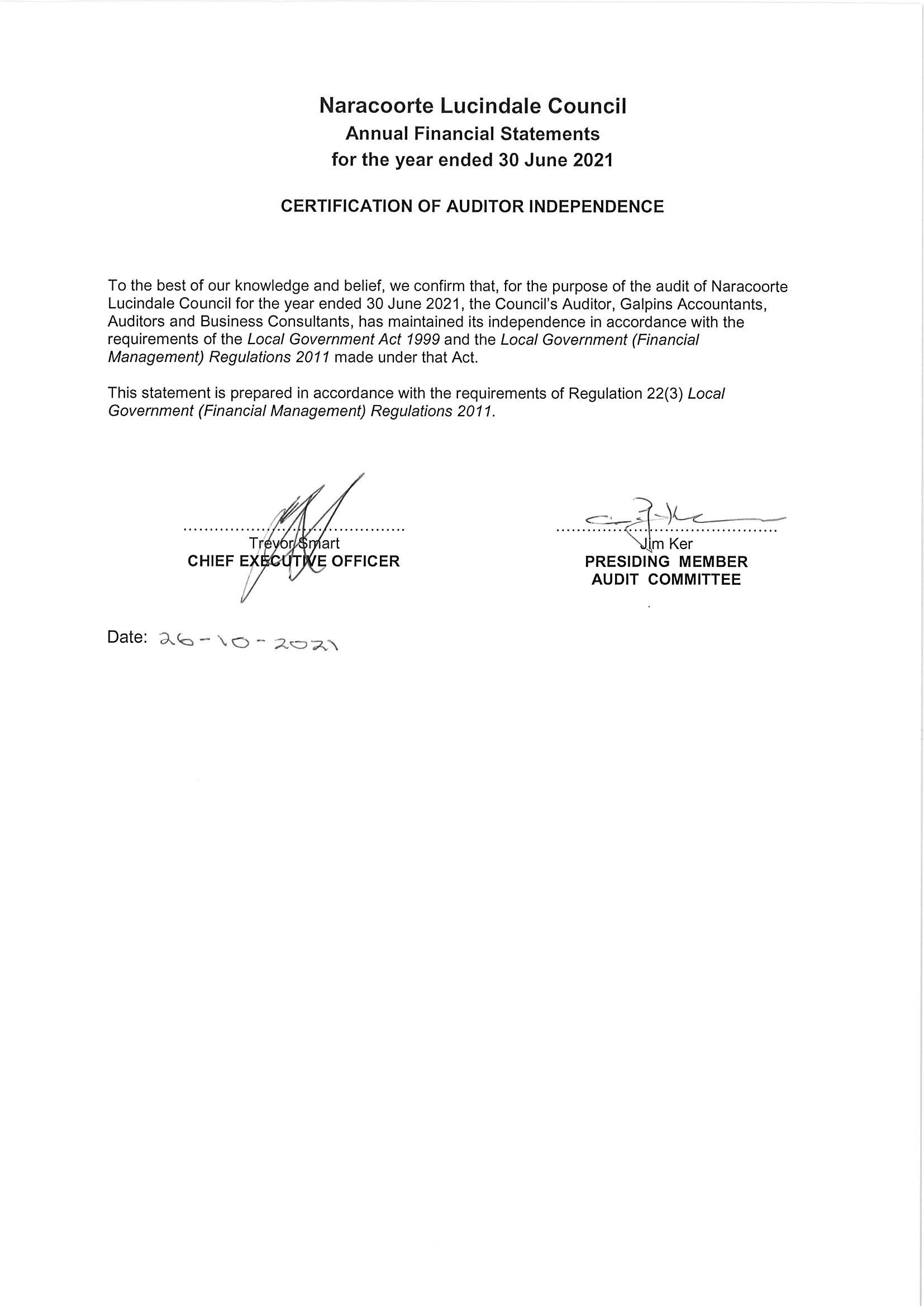
I confirm that, for the audit of the financial statements of Naracoorte Lucindale Council for the year ended 30 June 2021, I have maintained my independence in accordance with the requirements of APES 110 Code of Ethics for Professional Accountants, Section 290, published by the Accounting Professional and Ethical Standards Board, in accordance with the Local Government Act 1999 and the Local Government (Financial Management) Regulations 2011 made under that Act.
This statement is prepared in accordance with the requirements of Regulation 22 (5) Local Government (Financial Management) Regulations 2011.
Tim Muhlhausler Galpins Accountants, Auditors & Business ConsultantsDated this 2nd day of November 2021

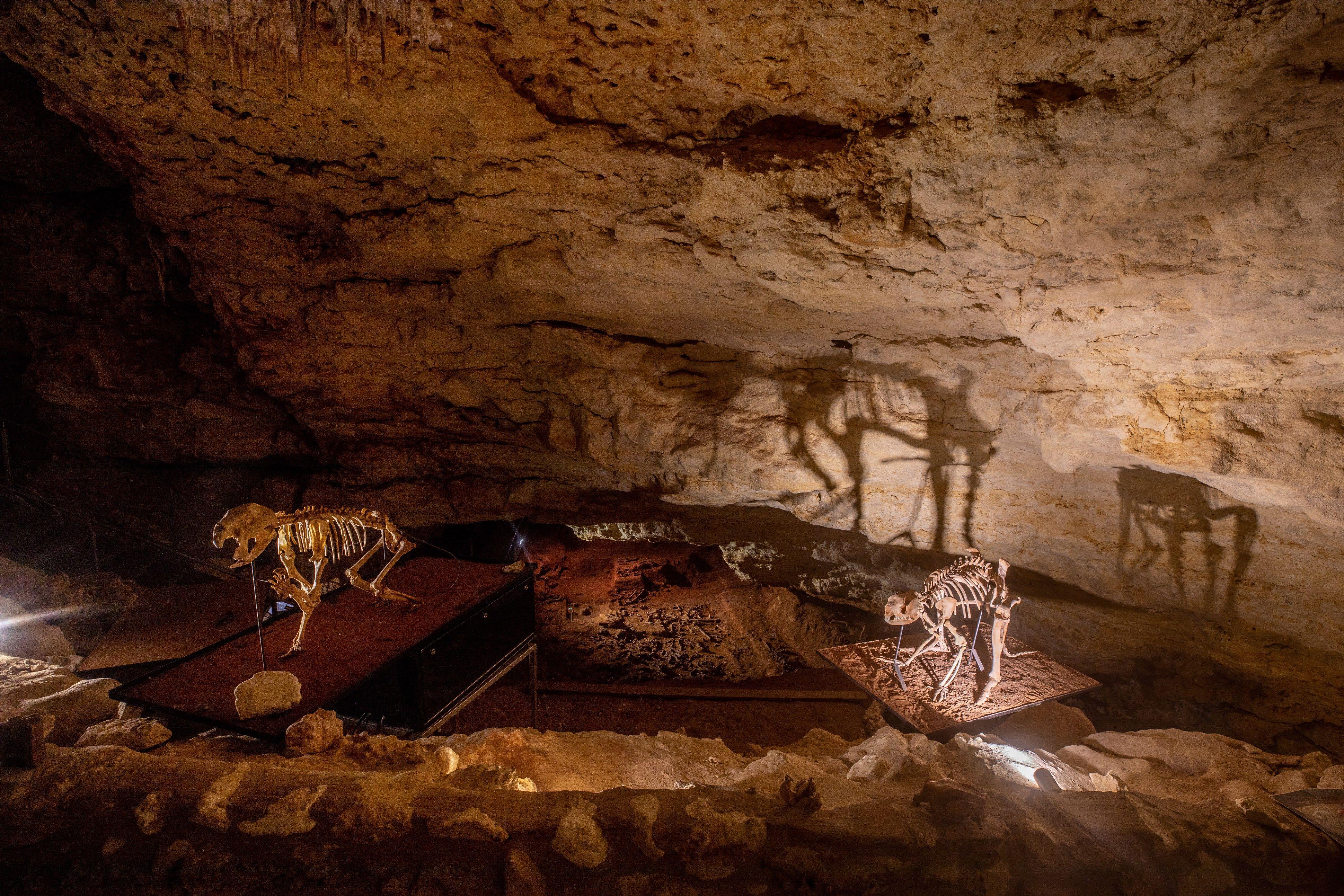
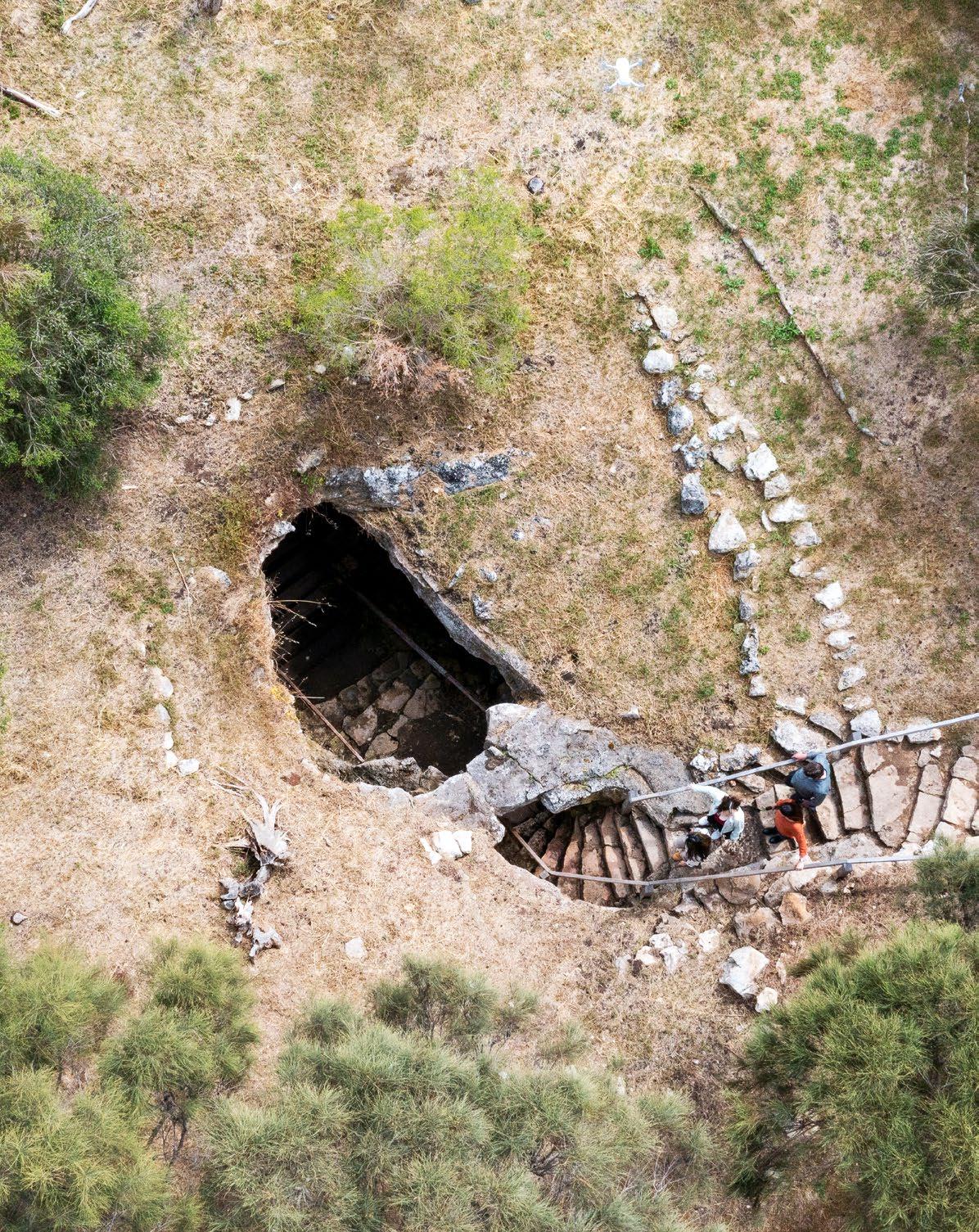






“It has been a privilege to be the president of the LCLGA and to work with the Mayors and CEOs of the Limestone Coast Councils.
2021/22 was a challenging year for our limestone coast community as we successfully managed the impacts of the pandemic and variants, cross-border travel restrictions with Victoria, geopolitical tensions that continue to impact supply chains and our markets, State and Federal elections, housing shortages, difficulties in recruiting staff, and the devastating impact of fire and coastal erosion.”
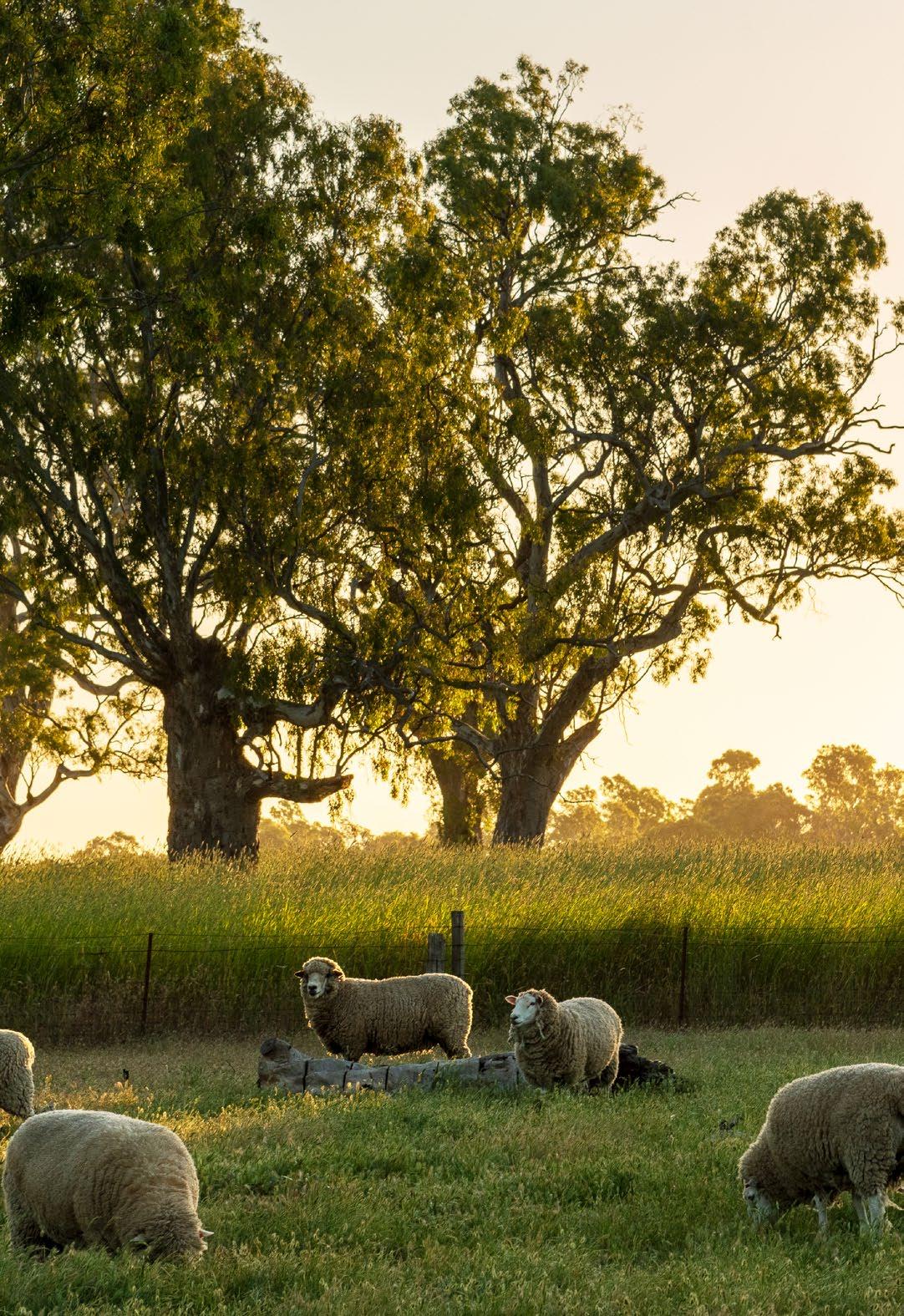 Mayor Erika Vickery (OAM) President LCLGA
Mayor Erika Vickery (OAM) President LCLGA
Local government is the level of government that is closest to our community, and we have worked collaboratively across the seven councils in the Limestone Coast for the benefit of our region. Indeed our purpose or “Why” is to “collectively build stronger communities”. The Limestone Coast Local Government Association (LCLGA) is the collaboration vehicle Councils use to collaborate and pursue regional outcomes. The Limestone Coast Councils have collaborated through the LCLGA for over 136 years showing that collaboration is a highly and sustainably held value.
We have continued to implement the directions of our five-year strategic plan. In particular, we continued to focus our efforts on being narrow and deep rather than shallow and wide in delivering value to our members and our water community. This means we are targeting our resources to do a few things well, rather than taking on so many activities that our efforts become diluted. The key to this approach being successful is to ensure we are focusing on the highest priority outcomes for our members.
Our highest priority work (as identified by our members in the 2021/22 Business Plan) was advocacy, destination development, regional waste, roads strategy, joint planning board, and StarClub. In addition to these projects, the LCLGA also delivered the outcomes from incubator projects. These are projects where, for a limited time, we experiment to see if we can deliver an innovative value proposition for our community and assess the potential for the innovation to transition into either business as usual or to exist as an ongoing concern outside of the LCLGA.
In 2021/22 we delivered three incubator projects, they were the Substance Misuse Limestone Coast (SMLC), the Regional Leadership Programme, and the Limestone Coast Regional Sports Academy (LCRSA). The SMLC has evolved into its own entity and is expected to spin out of the LCLGA in 2022/23, the Leadership program completed three successful years and has now evolved into a State Project with significant funding ($2m) from the State Government using our project as a model for all regions in SA; and the LCRSA continues to develop and has had significant success in assisting young subelite athletes to pursue sporting opportunities.
The development of our first Advocacy Agenda, which spells out the advocacy priorities for our region, has been a great tool to focus the advocacy effort of the
LCLGA and our members with a number of other regions seeking to duplicate this approach.
A special thank you to those agencies that partnered with us over the past twelve months. Without your valuable contribution, time and effort, many of our projects would not go ahead. They are the South Australian Tourism Commission, Office for Recreation Sport and Racing, Regional Development Australia Limestone Coast, Local Government Association of South Australia, SA Government Departments and Agencies, the University of South Australia, the Australian Federal Government and our member Councils. Your continued support is very much appreciated.
We acknowledge the tremendous efforts of Federal Member of Parliament Mr Tony Pasin MP and State Members Mr Troy Bell MP and Mr Nick McBride MP. Their assistance and support is valued and greatly appreciated.
On behalf of the Board, I would like to acknowledge the efforts of our dedicated staff over the past 12 months.
The Annual Report includes an overview of the value we have delivered to our members and community in 2021/22. I commend this years’ report to you and would like to acknowledge the continued support of the constituent council Mayors, elected members and Chief Executive Officers.
Mayor Erika Vickery (OAM) President LCLGA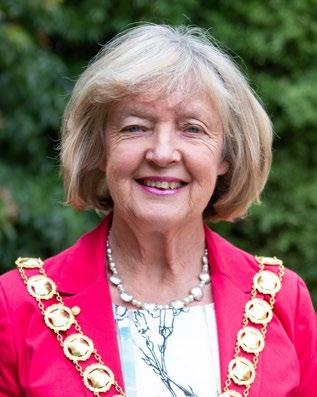
This document is the Annual Report of the Limestone Coast Local Government Association (LCLGA) Inc. for the period 1st July 2021 to 30th June 2022 and was prepared pursuant to the Local Government Act 1999 to report to Constituent Councils on the work and operation of the Association for the preceding financial year.
This report details the activities of the Association to represent and serve the seven Constituent Councils and to advance the Limestone Coast communities through effective advocacy, facilitation, project delivery and innovation.
LCLGA was established as a regional body on 6th October 1885. LCLGA is a regional subsidiary representing its Constituent Councils and is established pursuant to Section 43 of the Local Government Act 1999 by the Constituent Councils.
The Association is comprised of the following Constituent Councils:
ö District Council of Grant
ö Kingston District Council
ö City of Mount Gambier
ö Naracoorte Lucindale Council
ö District Council of Robe
ö Tatiara District Council
Under its Charter, LCLGA’s objectives are to:
ö Work in Association with both the Local Government Association of South Australia (LGASA) and the Australian Local Government Association.
ö Undertake co-coordinating, advocacy and representational roles on behalf of its Constituent Councils at a regional level.
ö Facilitate and coordinate activities of local government at a regional level related to social, environmental and community development with the object of achieving improvement for the benefit of the communities of its Constituent Councils.
ö Develop, encourage, promote, foster and maintain consultation and co-operation and to strengthen the representation and status of local government when dealing with other governments, private enterprise and the community.
ö Develop further co-operation between its Constituent Councils for the benefit of the communities of its region.
ö Develop and manage policies which guide the conduct of programs and projects in its region with the objective of securing the best outcomes for the communities of the region.
ö Undertake projects and activities that benefit its region and its communities.
ö Associate, collaborate and work in conjunction with other regional local government bodies for the advancement of matters of common interest.
ö Implement programs that seek to deliver local government services on a regional basis; and
ö To effectively liaise and work with the State and Commonwealth Government and instrumentalities on a regional basis for the general enhancement of the region.
The LCLGA Board comprises nominated representatives from each of the Constituent Councils and is chaired by the LCLGA President. Each Constituent Council can nominate up to two Deputy Board Members.

District Council of Grant Mayor Richard Sage
Wattle Range Council Mayor Des Noll
District Council of Robe Mayor Alison Nunan
Kingston District Council Mayor Kay Rasheed
Naracoorte Lucindale Council Mayor Erika Vickery (OAM)
Tatiara District Council Mayor Graham Excell
Cr Gillian Clayfield
Deputy Mayor Moira Neagle
Cr Dale Price
Cr David Laurie
Cr Jodie Gluyas
Cr Chris England
Cr Scott McLachlan
Cr Craig McGuire
Cr Robert Mock
The Board held six ordinary bi-monthly General Meetings, and The Annual General Meeting during 2021-2022. Meetings are hosted by Constituent Councils on a rotational basis.
Office Bearers 2021-22
In accordance with the LCLGA Charter, the positions of LCLGA President and Vice President are appointed at the Annual General Meeting, held in February.
At the Annual General Meeting in February 2022, Mayor Erika Vickery was again elected as LCLGA President, to serve in the position for a period of 12 months. Mayor Lynette Martin was elected as LCLGA Vice President.
During 2021-2022, the Executive Officer role was filled by Tony Wright. Dean Newbery and Partners are the appointed Auditor.
During 2021-2022, LCLGA engaged the following staff to deliver regional programs:
Tony Wright Executive Officer
Michaela Bell Program and Policy Manager
Tony Elletson
Biddie Shearing
Field Officer
Limestone Coast Regional Sporting Academy Coordinator
Development Manager
Ali Auld Leadership Program
Paul Manfrin
Services Officer
Misuse Limestone Coast Heidi Eldridge
Sophie Boucher
Development Coordinator
SAROC is an important LGA committee for non-metropolitan Councils. Membership is drawn from each of the six non-metropolitan Regional Local Government Associations with members meeting bi-monthly to discuss the key issues affecting non-metropolitan Councils.
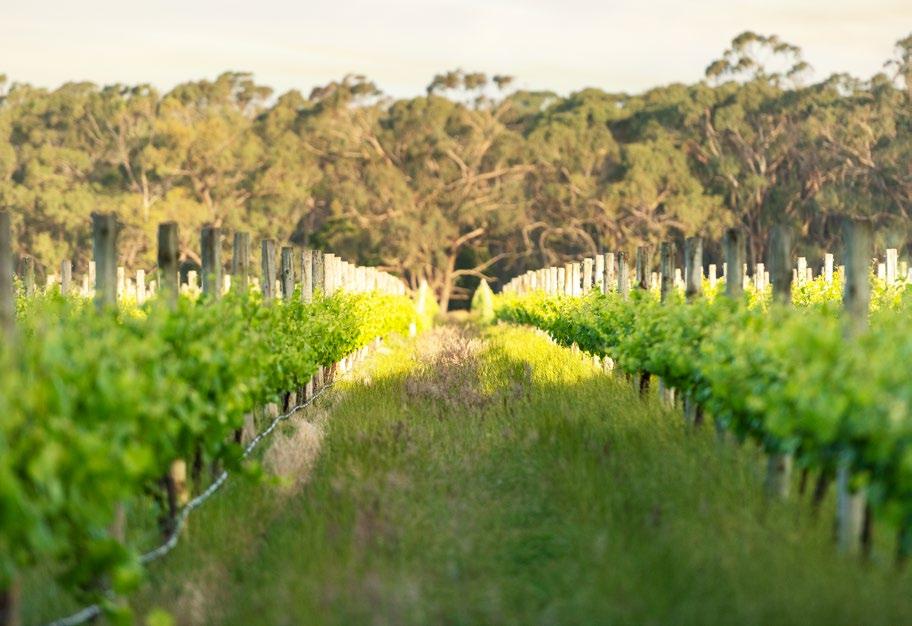 Under the Constitution of the LGASA, regions are represented via appointed members to serve on the LGA Board and the South Australian Regional Organisation of Councils (SAROC).
Under the Constitution of the LGASA, regions are represented via appointed members to serve on the LGA Board and the South Australian Regional Organisation of Councils (SAROC).
To undertake specific projects or fulfil areas of operational responsibility, LCLGA convenes a number of committees and working parties. LCLGA acknowledges the work of all who have contributed to the following committees and working parties throughout 2021-2022.
(The current appointments are listed, as of February 8, 2022)
Committee / Working Party Representative Council
LCLGA Roads and Transport Management Group
Cr Jamie Jackson (Presiding Member) Tatiara District Council
Mr Aaron Hillier
Cr Paul Jenner
CEO or delegated staff member
City of Mount Gambier
Mr Daniel Willsmore Naracoorte Lucindale Council
Mr Dave Worthley Kingston District Council
Mr Peter Halton Wattle Range Council
Ms Lauren Oxlade (Proxy)
Mr Adrian Schutz District Council of Grant
Mr Robert Noir Robe District Council
Cr Bob Bates (Proxy)
Mayor Erika Vickery (President) LCLGA
Mr Tony Wright
Limestone Coast Economic Development Reference Group (the group was suspended during 2021/22)
Mr Trevor Smart Naracoorte Lucindale Council
Mayor Richard Sage District Council of Grant CEO or delegate (Proxy)
Ms Emma Clay Wattle Range Council
Cr Frank Morello City of Mount Gambier
Mr James Holyman District Council of Robe
Ms Nat Traeger Kingston District Council
Mayor Graham Excell Tatiara District Council
Ms Anne Champness
Mayor Erika Vickery (President)
Mr Tony Wright
Mrs Michaela Bell
LCLGA
LCLGA Regional Waste Management Steering Committee
Mr Peter Halton (Chair)
Ms Lauren Oxlade (Proxy)
Mr Daniel Willsmore
Tourism Management Group
Wattle Range Council
Naracoorte Lucindale Council
Mr Dave Worthley Kingston District Council
Cr Paul Jenner
City of Mount Gambier
Mr Aaron Price District Council of Grant
Mr Leith McEvoy
Mr James Holyman Robe District Council
Mr Aaron Hillier Tatiara District Council
Mayor Erika Vickery (President) LCLGA
Mr Tony Wright
Mrs Michaela Bell
Ms Jayne Miller
Naracoorte Lucindale Council
Ms Nat Traeger Kingston District Council
Ms Emma Clay Wattle Range Council
CEO or delegate
City of Mount Gambier
Mr Kingsley Green Tatiara District Council
Ms Anne Champness
Mr Mike Ryan
District Council of Grant
Ms Camille Lehmann District Council of Robe
Mayor Erika Vickery (President) LCLGA
Mr Tony Wright
Mrs Biddie Shearing
Regional Sport and Rec Advisory Group Vacant District Council of Grant
Ms Heather Schinkel Kingston District Council
Mrs Jayne Miller Naracoorte Lucindale Council
Cr David Laurie District Council of Robe
Mayor Alison Nunan (Proxy)
Ms Naomi Fallon Tatiara District Council
Cr Kate Amoroso
LCLGA Audit & Risk Committee
City Mount Gambier
Ms Emma Clay Wattle Range Council
Mayor Erika Vickery (President) LCLGA
Mr Tony Wright
Mr Tony Elletson
Mayor Richard Sage District Council of Grant
Mayor Erika Vickery (Chair)
Naracoorte Lucindale Council
Mr James Holyman District Council of Robe
Mr Paul Duka Wattle Range Council
Mr Tony Wright
LCLGA
LCLGA has numerous representatives on working parties, boards and committees including State Government boards, cross border bodies and regional boards and committees. This representation allows LC LGA to keep in touch with communities and contribute to new and existing initiatives.
During 2021-2022, LCLGA made or continued the following appointments to other organisations.
(The
LCLGA
South East Zone Emergency Management Committee (ZEMC)
Limestone Coast Zone Emergency Centre Committee (ZEST)
Green Triangle Freight Action Plan - Implementation Management Group
Ms Barbara Cernovskis
Council
City of Mount Gambier
Mr Daryl Whicker District Council of Grant
Mr Tony Wright (Local Government Controller)
Mr Ben Hood (Local Government Deputy Controller)
Ms Barbara Cernovskis
Mr Tony Wright
Limestone Coast Community Services Roundtable Mayor Erika Vickery
LCLGA
City of Mount Gambier
City Mount Gambier
LCLGA
Naracoorte Lucindale Council
Cr Moira Neagle Wattle Range Council
Regional Development Australia Limestone Coast Mayor Erika Vickery
Limestone Coast Bush Fire Management Committee
Southern Border Fire Coordination Association
Local Government Association of SA - LGA Board
South Australian Regional Organisation of Councils (SAROC)
Mr David Hood
Mr Roger Balbolka (Deputy)
Naracoorte Lucindale Council
Naracoorte Lucindale Council
Wattle Range Council
Mr Roger Balbolka Wattle Range Council
Mayor Erika Vickery (SAROC Chair)
Naracoorte Lucindale Council
Mayor Richard Sage (Proxy) District Council of Grant
Mayor Erika Vickery (SAROC Chair) Naracoorte Lucindale Council
Mayor Richard Sage District Council of Grant LCLGA EO (Observer)
LCLGA
Group Training Employment
AC Care
Cr Paul Jenner
Mr Tony Wright
City of Mount Gambier
LCLGA

A sustainable community has resilience, leadership, a healthy environment, an optimistic mindset, community well-being, connected and inclusive with built environments where we want to live and others want to join.
Over the 2021/22 year, building sustainable communities in a COVID-19 recovering environment within a local government context was the focus.
ö Our networks, members and stakeholders are connected and engaged
ö Incubator project outcomes have transitioned to alternative governance and operational arrangements
ö The governance, effective management, and capabilities of sporting clubs continue to improve (Star Club)
ö Joint Planning Board commences operations to develop a new regional plan
Engage with stakeholders and proactive advocay
The development of our advocacy agenda was a helpful tool as we engaged with local members, through the LGASA, directly with government departments and via the Cross Border commissioner.
ö Local members incorporated our priorities into their campaigns.
ö Meetings with departments like DiT to create a channel for local priorities.
ö The Victorian Cross Border Commissioner picked up the transportability of TAFE funding as an impediment to efficient access to vocational training in cross border communities.
ö Shifting the state thinking on Regional Plans and Joint Planning Boards.
ö Engaging in the emerging debate on Regionalisation.
Star Club Program
This highly successful program continues to derive benefits for our community. As a region as we develop the skills and capability of our clubs to sustainably run them.
Sports Academy
Leadership Program
The Academy continues to grow and in 2021/22 a decision was made to limit numbers to ensure we sustain a focus on sub-elite athletes and develop the capability of our regional coaches.
To develop an immersive leadership development program to active community leadership.
ö Highest participation rate in StarClub of any region in SA.
ö Significant success from our StarClub Members accessing grants ($1.3m)
ö Delivery of training courses in the region in the areas of cyber security and child safe officer
Multiple achievements from personal bests to state and national teams and awards.
Continued support from ORSR and working closely with a number of sports on sub-elite pathways.
45 graduates from the program which has triggered a $2m investment in Regional Leadership by the SA Government as a direct result of the LCLGA Leadership Program.
Substance Misuse Limestone Coast
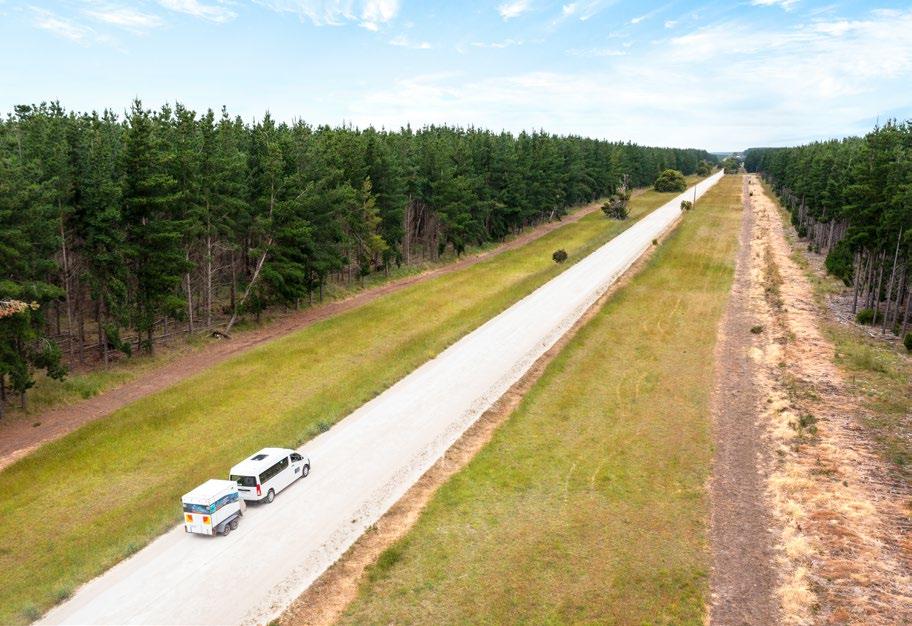
To support allied professionals and the community in engaging in the challenge of substance misuse and to activate a community response.
Regional Health and Wellbeing
Access Grant Funding
Develop and implement a Regional Health Plan
Access grant funding for LCLGA programs and assist our community with access funding.
The Planet Youth program is providing insights into community responses to reduce youth drug and alcohol harm.
SMLC Summit identified a number of areas where there were insufficient services to meet the need.
Training and information provided to professionals and families to assist with managing addiction and violence.
Plan completed and little additional work now required.
LCLGA accessed $248,000 in project grants, $288,000 for Auspiced projects, $665,000 for Roads ($1.2m).
Indirectly supported $1.3m in sports and numerous tourism submissions which have not been quantified.
Auspice the SA Coastal Council Alliance (SACCA)
Support the operations of the SA Coastal Council Alliance
The SACCA program was supported with use of our systems, contracts and financial controls. SACCA received $90,000 in 2021/22.
A strong economy relies on human capital (skills, knowledge, and innovation), financial capital (investment), productivity (more from less), realising local competitive advantages, entrepreneurialism, value clusters, increased supply chain value capture from exports, capturing local value (buy local); and attracting spend from outside our area (investment and visitation).
ö Destination Development Strategy (DDS) is approved, and implementation commences
ö Regional Roads Strategy is monitored and sought after funding for high-priority roads achieved
ö A viable (politically, commercially, risk and governance) waste option is developed
ö The Regional Growth Strategy is monitored, and Board approved projects delivered
ö Collaboration opportunities on cross-border projects are agreed
Monitor and develop the regional growth strategy
Maintain the Roads Database and Councils Skills
Overseeing the regional growth strategy. The regional growth strategy lost momentum and is being refreshed in 2022/23.
The Limestone Coast Regional Roads Plan and Database is current so we are seeking funding support for high-priority roads with regional significance. This planning and analysis ensures we have a sound evidence base to support these applications.
Test the viability of a regional waste
Implement the Destination Development
Continue to develop a model for a regional materials recycling facility.
Implement the Limestone Coast Destination Development Strategy to drive the increased economic value of Tourism for our region.
All projects but one were accepted for SLRP funding.
Feedback was provided into the LGASA process which seems to have become disconnected from the Regional Transport Plan.
Tender released for commercial advisors following three reviews into the financial viability of a regional MRF.
The strategy implemented, staff engaged, and the program had to pivot several times during the year to support our local industry with Covid-19 and borders closing, opening and the rules for crossing the border constantly changing.
RDALC
Cross Border Partnerships
Work with the RDALC to ensure there is clarity on the outcomes achieved from the provision of funding on behalf of our members.
Work with the Victorian Cross Border Commissioner and Councils to ensure the border does not limit opportunities for our region.
Clarification was reached on the funding model being related to small business services.
Frequent meetings with the Cross Border Commissioner who include the Limestone Coast in his Victorian Council fortnightly updates.
Red Meat Cluster
The Red Meat Cluster strategic plan was completed. The future of the group changing to a networking opportunistic one.
The Plan was completed as approved by the steering committee. Meetings were held to allow for networking and sharing of industry knowledge.
Building our capability focuses on increasing the availability and access to resources, reducing costs, improving performance, developing new skills and knowledge, leveraging our member’s abilities for collective benefits, and developing and growing our employee’s capabilities across our region.
ö
skills, resource sharing and funding arrangements (including grants) commenced
ö Shared approaches deliver improved value
ö Members collaborate effectively through LCLGA forums, committees and working groups
ö Members are well-positioned to respond to the requirements of the Local Government Review Bill.
Deliver member forums Deliver a number of forums to keep our members connected and informed.
Multiple forums delivered as board meetings, workshops, fortnightly CEO and Mayor catchups and working group meetings. In total at least 95 forums and meetings were facilitated by the LCLGA throughout the year.
Members’ communications and dashboard
Ensure our members are kept up to date on regional issues and have a clear oversight of the LCLGA’s performance
Shared capability
Provide analysis, advice, submissions and advocacy.
Seek opportunities for shared capability development.
Engage, via various channels, with stakeholders to ensure the needs of our members and region are considered in decisions making and policy development.
Communications are being improved with informal forums and email proving to be an effective channel. A draft dashboard has been developed for inclusion in the website upgrade in 202/23.
An opportunistic approach, such as with the Localis system but a structured approach was not developed and in 2022/23 this responsibility has been moved back to the CEO forum.
The development of our Advocacy Agenda has focused our communications and stakeholder attention on our priorities.
DiT is now trialling a local government engagement with the LC Roads Group to set regional priorities.
Following the election, there has been a significant increase in support for the Sports Academy with an additional $300,000 in grant funding over the next three years.
The Limestone Coast Local Government Association (LCLGA) reshaped the regional tourism program into a broader Destination Development Strategy to bring together regional branding and activities to grow the visitor economy and regional prosperity and as a result of this, the Destination Development Strategy received additional resources from our members to support its delivery.
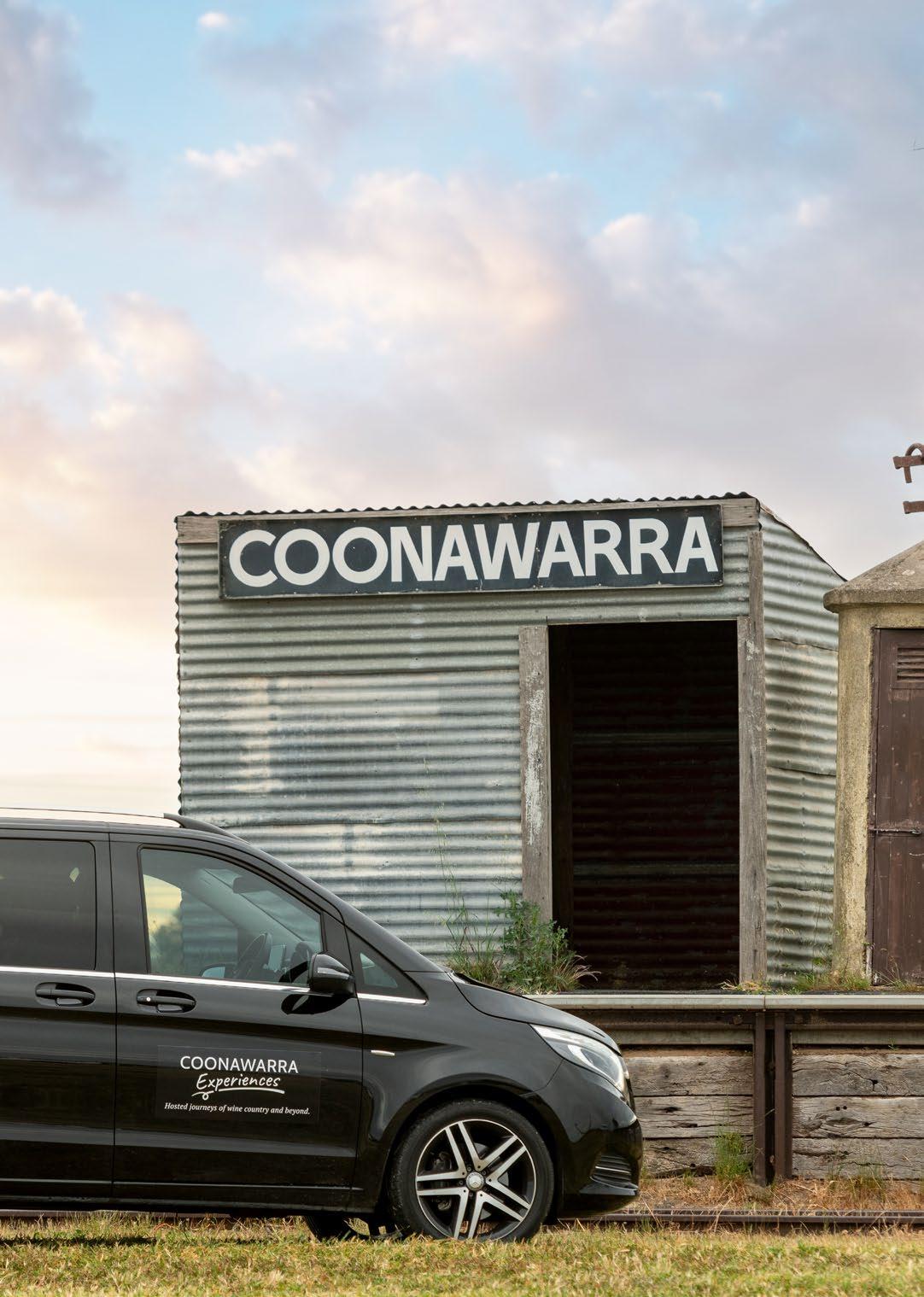
While significant progress was made in implementing the approved strategy there was also a need to pivot and support our industry as the border opened, closed and opened as states tried to manage community concerns, health infrastructure and lack of knowledge as new Covid-19 variants emerge. Over the Christmas period, this was extremely disruptive and significantly impact our Tourism industry.
In particular, we made significant progress implementing the 149 identified actions in the strategy which included increasing our social media marketing, developing industry capability, developing itineraries, connecting the local industry, creating learning experiences and creating a new website landing page.
The continued development of the industry operator Facebook page, which we established to support operators when COVID-19 started, has grown from 253 to 533 members and proved to be an extremely effective communication tool with the limestone coast tourism industry.
The LCLGA have invested in creating digital storytelling to promote our region to target markets. This has proven
to be extremely effective as social media reach across Instagram and Facebook achieving just under 800,000 engagements.

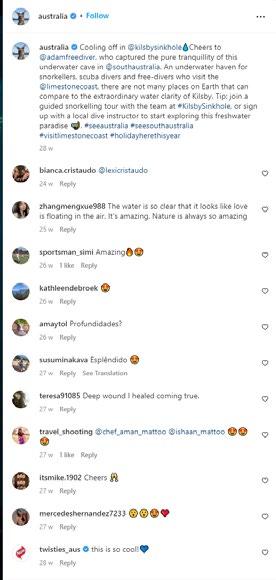
The focus of our social media marketing campaign has been to increase the awareness of the Limestone Coast as a travel destination, increase engagement and trust with website users, convert website users into two bookable opportunities, and build trust and reposition the tourism industry within the limestone coast to be more invested and engaged in digital marketing.
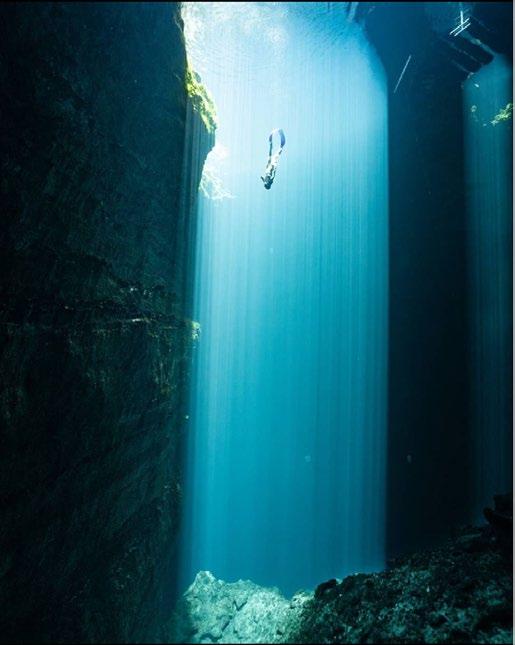
In addition to our social media marketing activities, we also worked closely with the South Australian Tourism Commission (SATC) and attended regional tourism forums, facilitated Famil’s with the tourism industry and over 50 influencers, and distributed over 1300 pieces of communication with Limestone Coast tourism operators, over 150 face to face appointments within our region provided over 208 posts on opportunities for funding training and webinars to tourism operators. We also provided essential market intelligence to the SATC on the impact of close borders on the tourism industry and the effectiveness of the programmes in supporting tourism in the Limestone Coast.
During 2021/22, we also entered into new collaborative partnerships with Wimmera Mallee Tourism, Glenelg Shire Tourism, Great Ocean Road Tourism and specific consumer campaigns with Southern Grampians Shire.

The Destination Development Project continues to support the Mixed Dozen Interactive Trails Planner which is embedded in our destination website and supported over 50 businesses who applied for state government tourism-related grants for industry development, event funding and nature-based tourism.
We supported over 12 events across the region with collaboration from the SATC.
A significant milestone in the Destination Development Project was delivering the first operator event at Cape Jaffa Wines with over 80 operators attending (the largest turnout for an event of this type in 10 years). There was a significant appetite to meet again in person and to hear about the LCLGA’s plans to support the limestone coast tourism industry.
We continued to engage in face-to-face and in-person trade events with tourism booking intermediaries, for example in just one of these events we had 211 appointments with the trade to promote the Limestone Coast as a desirable destination for their clients.
The Destination Development Manager (Biddie Shearing) took up a new role with the City of Mount Gambier. We thank Biddie for the significant work she has done in supporting the Limestone Coast tourism industry and by creating the destination development strategy we are currently implementing.
Biddie has been a powerhouse behind the LCLGA’s activities working with our members and operators to promote and develop the capability of our tourism industry. We wish her well for the future.
Local government recognises the importance of sporting and recreation clubs to regional communities and is pleased to partner with the Office for Recreation, Sport and Racing to deliver the Star Club Program and Regional Sports Academy in the Limestone Coast.

The StarClub Program promotes involvement in recreation and sport by supporting all sporting and recreation clubs in the Limestone Coast in the areas of leadership, financial sustainability, compliance, planning and volunteer management. LCLGA hosts the StarClub Field Officer, who serves as an on-ground resource and a conduit between clubs, councils, associations and the Office of Recreation and Sport.
The long-term goals of this program are:
ö To ensure clubs in the region are compliant with State and Federal Legislation,
ö Clubs are financially stable through prudent self-management and have access to appropriate funding
ö Maintain and build on membership, players and volunteers within the club.
The StarClub Field Officer provides support to clubs and associations in a number of areas:
Awareness of grant availability and application support, increased eligibility through Starclub membership, and education and training regarding financial stability.
In 2021/22 the Limestone Coast received 20% of State Government Grants for sporting infrastructure ($1.3 million), this was a significant outcome when we represent 3% of the SA population.
Sourcing and retaining volunteer support, running nationally-accredited training and education locally, information on education and training courses, providing templates for job descriptions for volunteers, Volunteer Management Policy assistance, ideas to involve, recognise and reward volunteers, and providing information on Succession Plans and complaints / conflict procedure.
Occupational Work, Health and Safety for club staff and volunteers, Child Protection, constitutions update, review or start from scratch, incorporation, affiliation with State or national bodies, compliance with the Discrimination Act, risk management and information on licensing requirements for clubs selling alcohol. Such as providing Cyber Safe Webinar and Child Safe Officer courses across the region (free to StarClubs members).
Long term maintenance of facilities, Strategic Planning, Job Descriptions, Codes of Conduct, Good Sports Program and Play by the Rules Program. Such as the Robe Strategic Plan, Assisting the Tatiara Masters Games Committee, Mount Gambier Open Space Recreational Plan.
Limestone Coast Regional Sporting Academy (LCRSA)
In partnership with the Office for Recreation, Sport and Racing and the LCLGA, the Limestone Coast Regional Sporting Academy (LCRSA) inducted its first Inductees in October 2017 and commenced working with these Athletes in November, as part of a Pilot Program.
The Academy has continued to grow since its inception and now partners with six sports - Hockey, Tennis, SASI Cycling, Swimming, Basketball (via the Pioneers) and Athletics SA. The Academy also continues to receive significant support from the Office for Recreation, Sport and Racing in terms of funding, advice and networks.
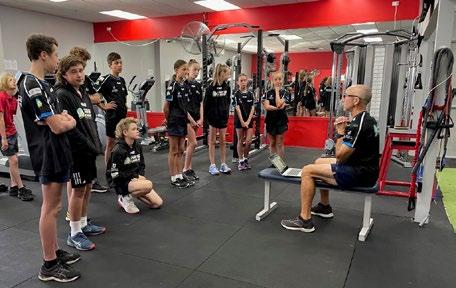
Due to the Academy’s success, there has been a high demand to join our program. The LCLGA took a decision to ensure we remained focused on elite and sub-elite pathways and capped the numbers at 70 so we could continue to provide focused and efficient support to Academy members.
Highlights included:
ö Hockey and Tennis program athletes won competitions against Western Victoria Sports Academy. Our Hockey team in particular excelled playing against a team made up of Victorian State Players and our Tennis Team won against players up to five years their seniors.
ö A Coach from the Academy was appointed Head of Sports Science with Div. One English Football Team Ipswich Town.
ö Academy member drafted by the AFLW Crows.
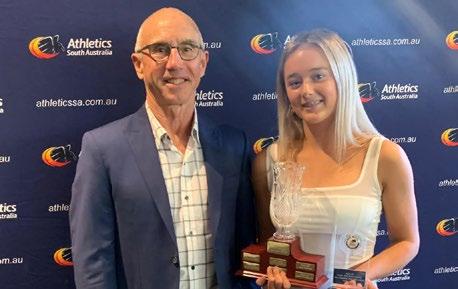
ö Two cyclers were selected in the National Futures Squad.
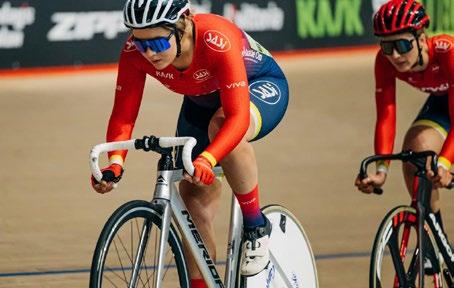
ö Academy hockey players selected in the National U18 Squad
ö Former Academy participant becomes the youngest player to reach 50 games in the SANFLW.
ö State titles in the under 20 years of age in the 100m and 400m.
ö Basketball U18 State Girls Team Representative.
ö Supporting a member of the Australian Ballet School with strength and conditioning programs.
ö SASI partnership to enable talent testing in schools.
ö National Men’s Track Cycling Coach visiting our region to work with our athletes.
ö Ten Basketball Program athletes making their state age teams and one making the national team.
ö A National Champion in the Heptathlon.
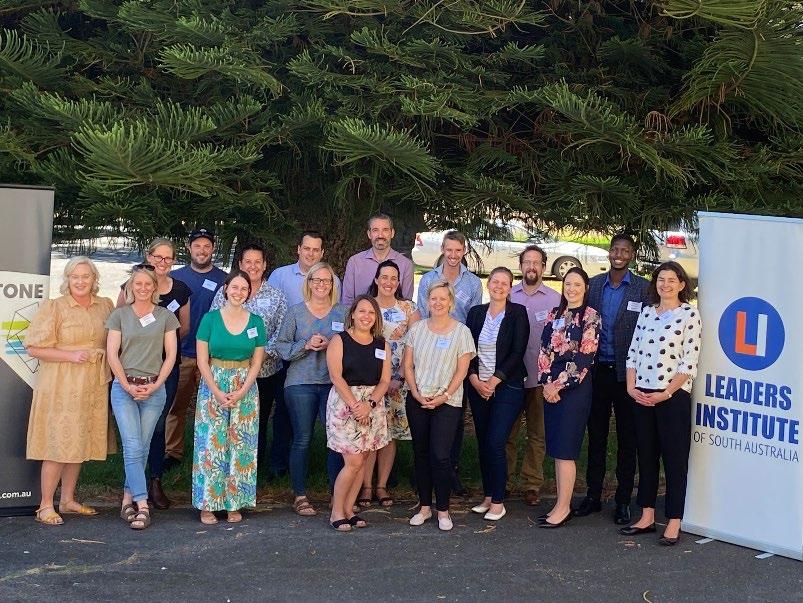
In its last year, the community leadership capacity-building program aims to develop people for roles on Boards, Council, Community Leadership, Project Development and Governance, Industry and Business Associations and Sport, Recreation and Service Clubs.
Over three years, there were 45 graduates with a number progressing to take on leadership roles in the community and even progressing to employment in local government. Overall the program was 23% funded by Councils and 77% of funds sourced from business, industry associations, community, government, and philanthropic organisations.
Following the cessation of the program, the State Government Announced a $2m investment in activating regional leadership, based on the outcomes and learnings from the LCLGA project.
SMLC’s origins are inspired by the work of the Western Region Alcohol and Drug Service and research by the Victorian Parliament’s inquiry into the Supply and Use of Methamphetamines and in their subsequent Ice Action Plan.
While the issues and responses are complex, SMLC has focused on objectives which match key elements of the Victorian Ice Action Plan and National and State Alcohol and Other Drug Strategies.
ö Supporting Limestone Coast school’s evidence-based AOD education in the curriculum.
ö To Build community awareness of addiction issues / Website / LinkedIn.
ö
Community Partnerships
ö To establish a Board representing diverse community interests to build and champion the development of substance misuse infrastructure and a community-based collaborative model.
Highlights included:
The SMLC produced a substance use report on the impacts of Covid-19 in the Limestone Coast which identified the following issues:
ö Alcohol use increase by up to 25%;
ö Increased reports of domestic and family violence;
ö Increased reports of severity of domestic and family violence;
An increase in methamphetamine and GHB use;
25% mental health presentation increase;
25% increase for financial counselling services;
ö Privacy and security concerns through Zoom and online applications were experienced by professionals;
ö 67% of agencies considering altering client contact models into the future;
ö No public transport within the Limestone Coast highlighted.
Proactive Education Program for the public, support agencies and in education facilities as a prevention strategy
Reactive Treatment Programs that include harm minimisation interventions, medical, hospital detox and rehab facilities
Evolving Systemic Structures that include funding for education and training of existing and new professionals, policing reponses and changes to legal frameworks.
Planet Youth Survey Conducted Across Our Region with 12 schools participating Family education and therapeutic training for family and friends supporting someone with drug and or alcohol problems.
Formation of the SMLC as an independent legal entity Delivered a regional summit on regional needs and goals in alcohol and other drug sectors. Domestic and family violence workforce training for 40 frontline professionals

We have audited the accompanying financial report of the Limestone Coast Local Government Association (the Authority), which comprises the Statement of Financial Position as at 30 June 2022, the Statement of Comprehensive Income, the Statements of Changes in Equity, the Statement of Cash Flows for the year then ended, and notes to the financial statements, including a summary of significant accounting policies, and other explanatory information and the Certification of the Financial Statements
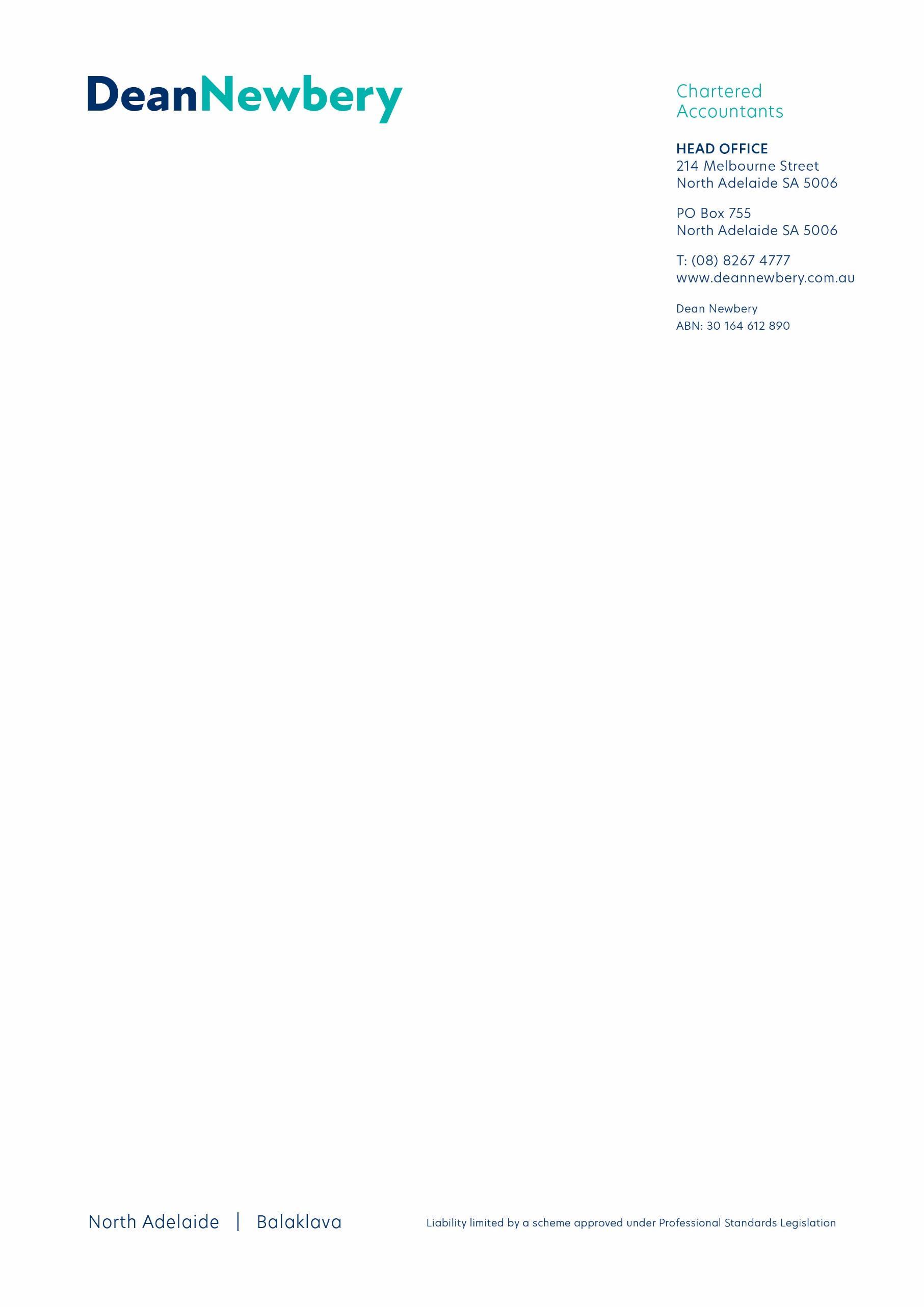
In our opinion, the accompanying financial report presents fairly, in all material aspects, the financial position of the Authority as at 30 June 2022, and its financial performance and its cash flows for the year then ended in accordance with the Local Government Act 1999, Local Government (Financial Management) Regulations 2011 and the Australian Accounting Standards
We conducted our audit in accordance with Australian Auditing Standards. Our responsibilities under those standards are further described as in the Auditor’s Responsibilities for the Audit of the Financial Report section of our report. We are independent of the Authority in accordance with the auditor independence requirements of the ethical requirements of the Accounting Professional and Ethical Standards Board’s APES 110 Code of Ethics for Professional Accountants (the Code) that are relevant to our audit of the financial report in Australia. We have also fulfilled our other ethical responsibilities in accordance with the Code.
We believe that the audit evidence we have obtained is sufficient and appropriate to provide a basis for our opinion.
Management is responsible for the preparation of the Authority’s financial report in accordance with Australian Accounting Standards, the Local Government Act 1999 and the Local Government (Financial Management) Regulations 2011, and for such controls as Management determines is necessary to enable the preparation of the financial report is free from material misstatement, whether due to fraud or error.
In preparing the financial report, Management is responsible for assessing the Authority’s ability to continue as a going concern, disclosing, as applicable, matters relating to going concern and using the going concern basis of accounting unless management either intends to liquidate the Authority or to cease operations, or has no realistic alternative but to do so.
Those charged with governance are responsible for overseeing the Authority’s financial reporting process.
Our objectives are to obtain reasonable assurance about whether the financial report as a whole is free from material misstatement, whether due to fraud or error, and to issue an auditor’s report that includes our opinion. Reasonable assurance is a high level of assurance, but is not a guarantee that the audit conducted in accordance with the Australian Auditing Standards will always detect a material misstatement when it exists. Misstatements can arise from fraud or error and are considered material if, individually or in the aggregate, they could reasonably be expected to influence the economic decisions of users taken on the basis of financial report.
As part of an audit in accordance with the Australian Auditing Standards, we exercise professional judgement and maintain professional scepticism throughout the audit. We also:
• Identify and assess the risks of material misstatement of the financial report, whether due to fraud or error, design and perform audit procedures responsive to those risks, and obtain audit evidence that is sufficient and appropriate to provide a basis for our opinion. The risk of not detecting a material misstatement resulting from fraud is higher than for one resulting from error, as fraud may involve collusion, forgery, intentional omissions, misrepresentations, or the override of internal control.
• Obtain an understanding of internal control relevant to the audit in order to design audit procedures that are appropriate in the circumstances, but not for the purpose of expressing an opinion on the effectiveness of the internal control.
• Evaluate the appropriateness of accounting policies used and the reasonableness of accounting estimates and related disclosures made by those charged with governance.
• Conclude on the appropriateness of the Authority’s use of the going concern basis of accounting and, based on the audit evidence obtained, whether a material uncertainty exists related to events or conditions that may cast significant doubt on the ability to continue as a going concern. If we conclude that a material uncertainty exists, we are required to draw attention in our auditor’s report to the related disclosures in the financial report or, if such disclosures are inadequate, to modify our opinion. Our conclusions are based on the audit evidence obtained up to the date of our auditor’s report. However, future events or conditions may cause the Authority to cease to continue as a going concern.
• Evaluate the overall presentation, structure and content of the financial report, including the disclosures, and whether the financial report represents the underlying transactions and events in a manner that achieves fair presentation.
We communicate with those charged with governance regarding, among other matters, the planned scope and timing of the audit and significant audit findings, including any significant deficiencies in internal control that we identify during our audit.
DEAN NEWBERY JIM KEOGH PartnerSigned on the 18th day of October 2022, at 214 Melbourne Street, North Adelaide, South Australia 5006

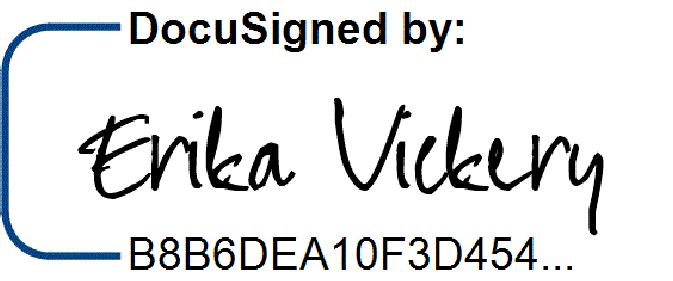
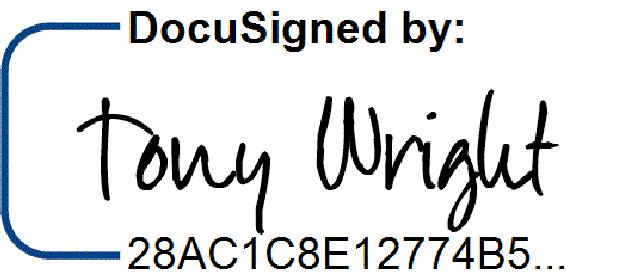
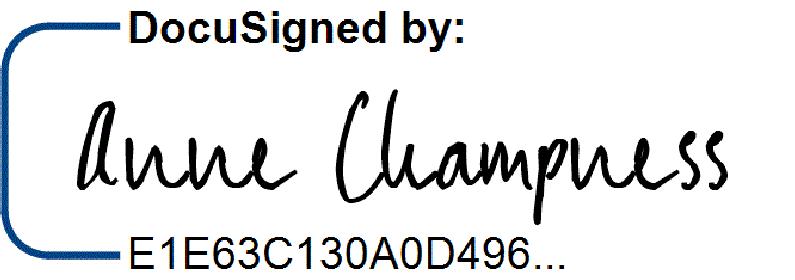
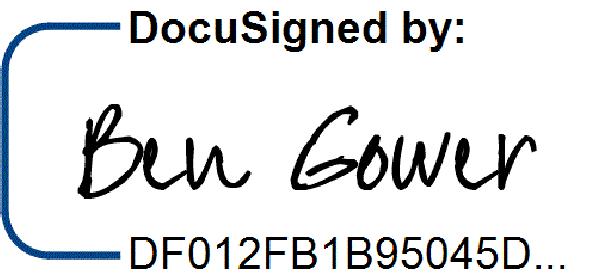
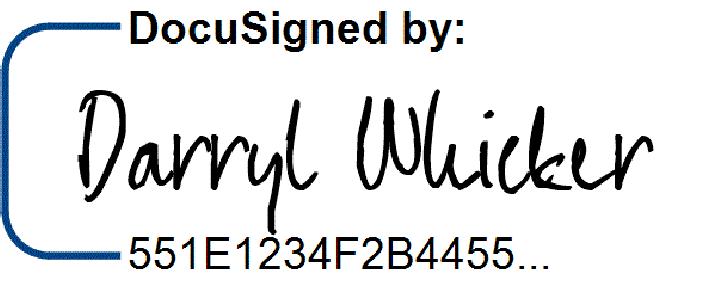
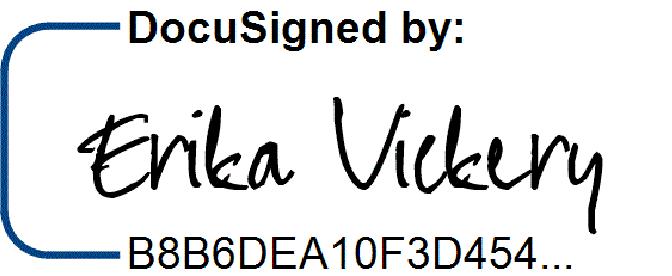
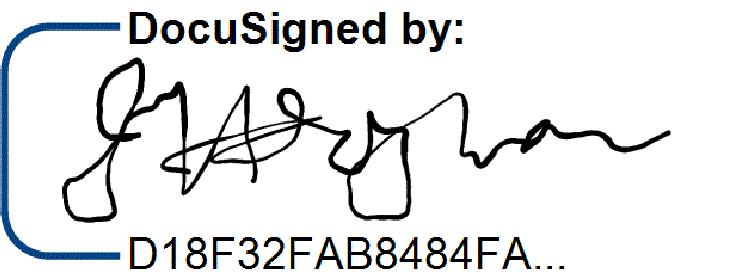
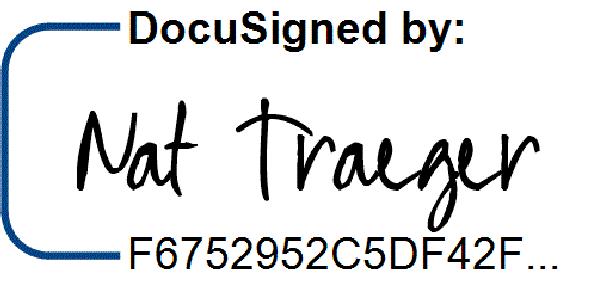
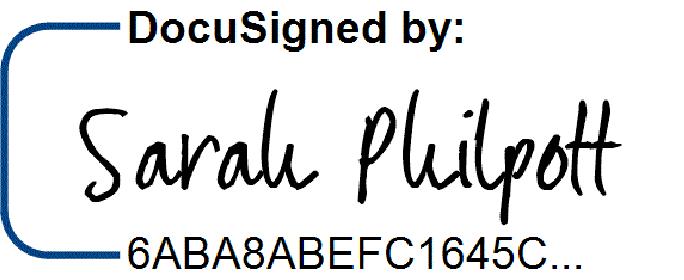
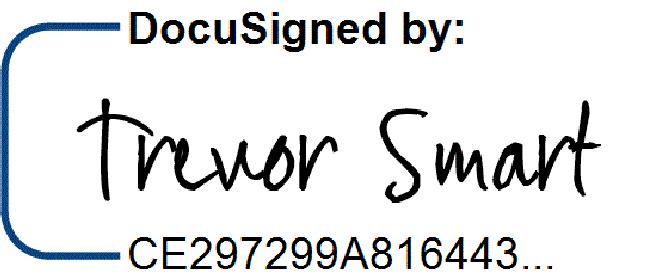
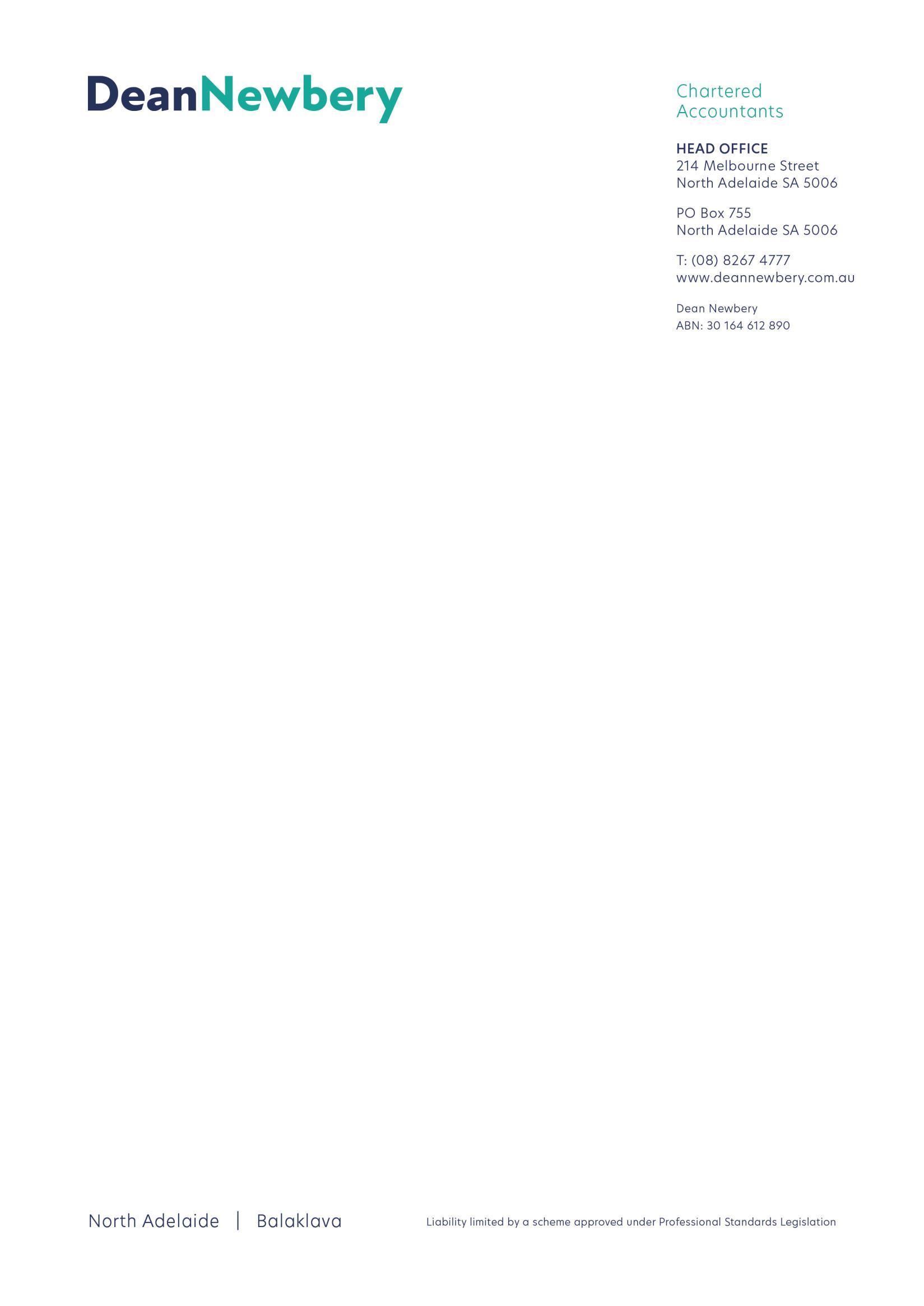
I confirm that, for the audit of the financial statements of the Limestone Coast Local Government Association for the year ended 30 June 2022, I have maintained my independence in accordance with the requirements of APES 110 Code of Ethics for Professional Accountants, Part 4A, published by the Accounting Professional and Ethical Standards Board, in accordance with the Local Government Act 1999 and the Local Government (Financial Management) Regulations 2011 made under that Act.
This statement is prepared in accordance with the requirements of Regulation 22 (5) Local Government (Financial Management) Regulations 2011.
JIM KEOGH PARTNERSigned on the 18th day of October 2022, at 214 Melbourne Street, North Adelaide, South Australia 5006
 LCLGA acknowledges the Constituent Council Mayors, Elected Members, Chief Executive Officers, Council staff and LCLGA staff for their support of the regional role of the Association.
During 2021/22, the LCLGA Board engaged a small team to implement a diverse and comprehensive regional work plan: Tony Wright (Executive Officer), Michaela Bell (Program & Policy Coordinator), Tony Elletson (LCLGA Star Club Field Officer & Limestone Coast Regional Sporting Academy), Biddie Shearing (Destination Development Manager Manager), Ali Auld (Leadership Program), Sophie Bourchier (Substance Misuse Program) and Paul Manfrin (Corporate Services Officer).
The Local Government Association SA has continued to provide strong support to LCLGA and its members throughout the year. LCLGA acknowledges the contributions of SAROC members and the many LGA SA staff that have supported LCLGA throughout the year.
LCLGA continues to enjoy a close working relationship with RDALC Board members and staff.
Tony Wright Executive Officer
LCLGA acknowledges the Constituent Council Mayors, Elected Members, Chief Executive Officers, Council staff and LCLGA staff for their support of the regional role of the Association.
During 2021/22, the LCLGA Board engaged a small team to implement a diverse and comprehensive regional work plan: Tony Wright (Executive Officer), Michaela Bell (Program & Policy Coordinator), Tony Elletson (LCLGA Star Club Field Officer & Limestone Coast Regional Sporting Academy), Biddie Shearing (Destination Development Manager Manager), Ali Auld (Leadership Program), Sophie Bourchier (Substance Misuse Program) and Paul Manfrin (Corporate Services Officer).
The Local Government Association SA has continued to provide strong support to LCLGA and its members throughout the year. LCLGA acknowledges the contributions of SAROC members and the many LGA SA staff that have supported LCLGA throughout the year.
LCLGA continues to enjoy a close working relationship with RDALC Board members and staff.
Tony Wright Executive Officer
